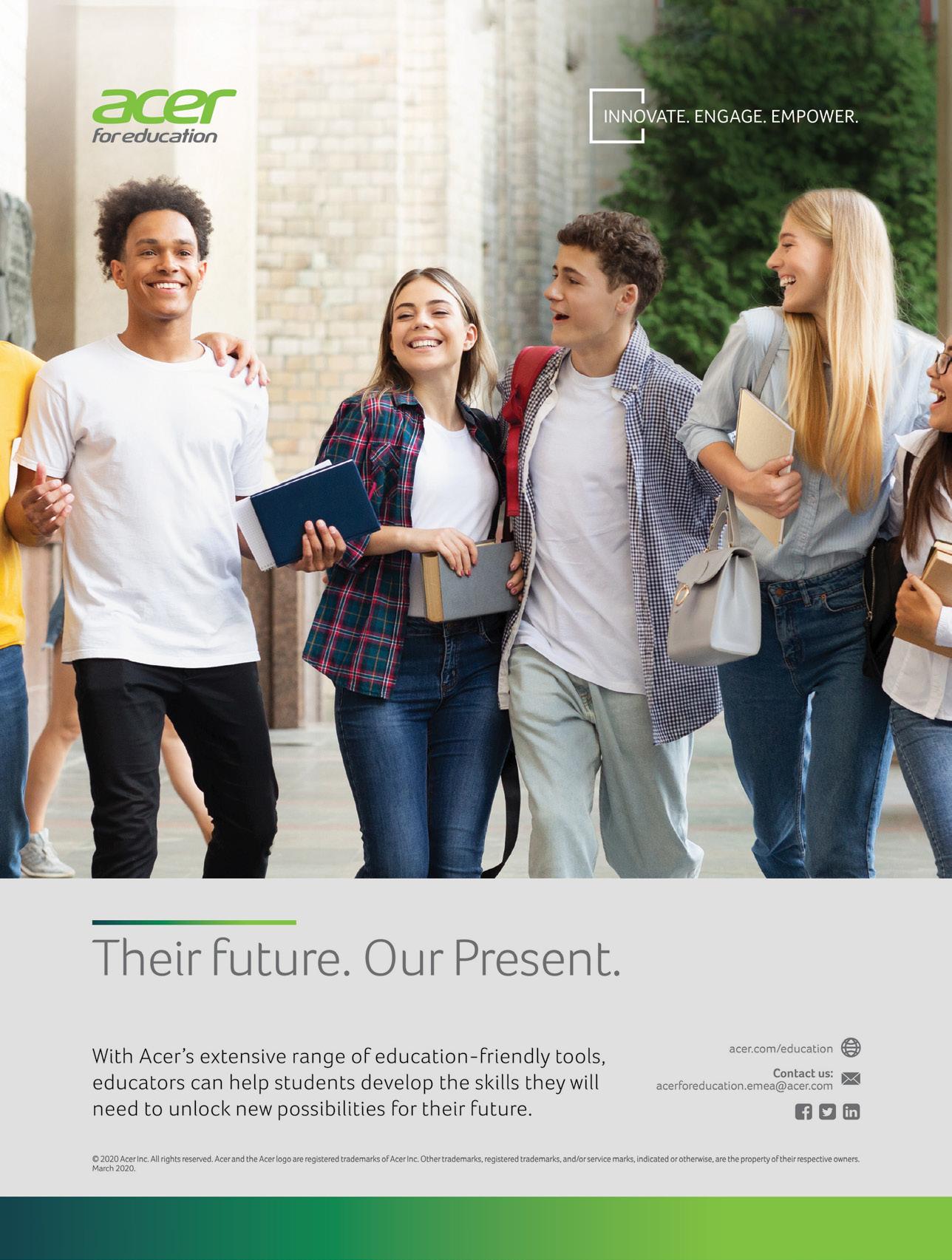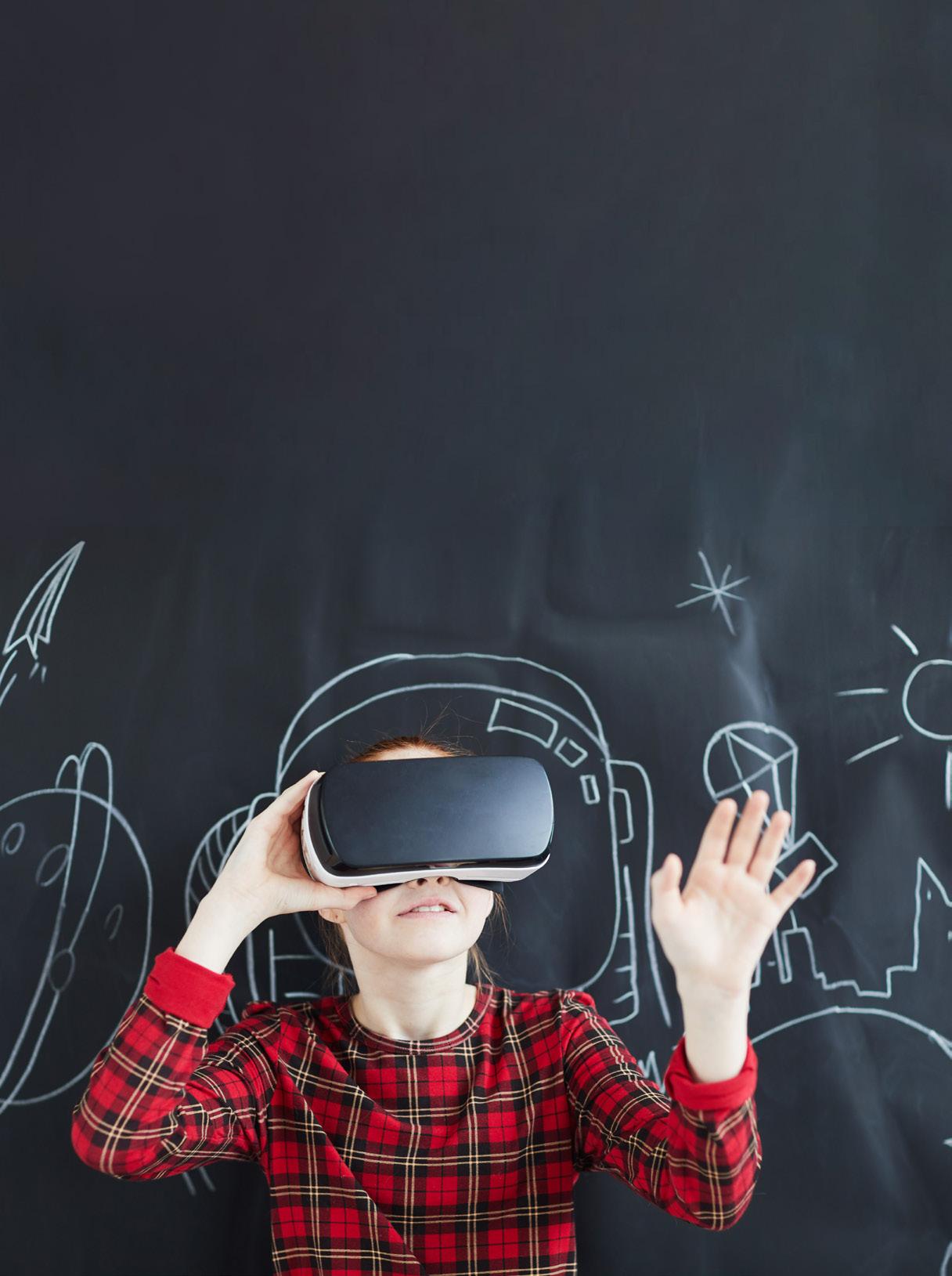
INDIAN EDITION www.k12digest.com JANUARY 2023

istockphoto.com/KvdB50
Switzerland

mustvisitdestinations.com
Global Education Trends - 2023


Head of Advisory Board
Dr. Manoj Varghese, Ph.D
Managing Editor
Sarath Shyam
Consultant Editors
Dr. John Andrews
Anuja Mulmule
Emma James
Andrew Scott
Amrin Ahmed Charlie Jameson
Naomi Wilson
Stanly Lui
Roshni Rajagopal
Sabrina Samson
Enquiry: admin@k12digest.com
Creative Consultants


Keith Alexander Ajay Das
Manjunath R
Louis Bernard
Rohith Poojary
Shirley David
Branding & Marketing Partnerships
Jennifer Anderson
Monica Davis
Suchita Sethy
Siva Kumar
Jessica Edword
GET THE MOBILE ISSUE


Rachel Roy
Shubham Amle
Anna Elza
Stephen Donnell
Cathy Chen
Enquiry: admin@k12digest.com
Subscription
www.k12digest.com

International Representation


Americas 16192 Coastal Highway, Lewes, DE 19958, USA
Europe 27, Old Gloucester Street, London, WC1N 3AX, UK
Middle East & Africa P.O. Box 48299, Dubai Silicon Oasis, Dubai, UAE
Asia-Pacific

Ramanashree Arcade, 18 MG Road, Bangalore – 560001, India
K12 Digest is a digital magazine published by Connecta Innovation Private Limited. All rights reserved. The opinions expressed in the content and pictures provided are those of the authors. They do not purport to reflect the opinions or views of the Connecta Innovation Private Limited or any of its members and we do not assume any responsibility. The publisher does not assume any responsibility for the advertisements, its content, pictures, and all representation of warranties made in such advertisements are those of the advertisers and not of the publisher. K12 Digest is a Free Subscription digital magazine strictly not for sale and has to be strictly for internal private use only. Publisher does not assume any responsibility arising out of anyone printing copy of this digital magazine in any format and in any country and all matters related to that.
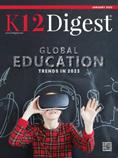
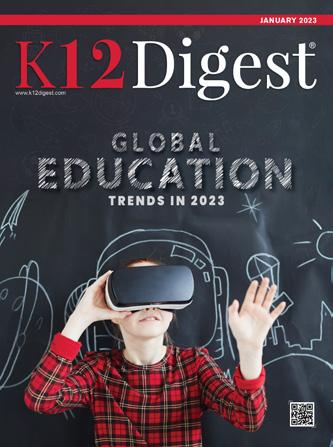

Digest January 2023 4 January 2023 Vol - 4 Issue - 1
Video games are not a distraction for students anymore. With the adoption of technology and change in the overall mindset of aspirants and academics, video game design and game elements are being incorporated into the learning process. It has been proved that the Gamification technique recreates the same factors in the classroom, incorporating elements from games to provide students with opportunities to act autonomously and to display competence. Similarly, the talk of the town, Artificial Intelligence, and Virtual Reality are now increasingly used in the education sector. No wonder AR and VR in the Education Market are anticipated to grow at a CAGR of 18.2% from the year 2022 to 2027, and AI in the education market is projected to reach USD 3.68 billion this year.
Mireia Lopez, a primary school teacher with a Masters in Psychology, says, “Learning
The Quest for Global Education

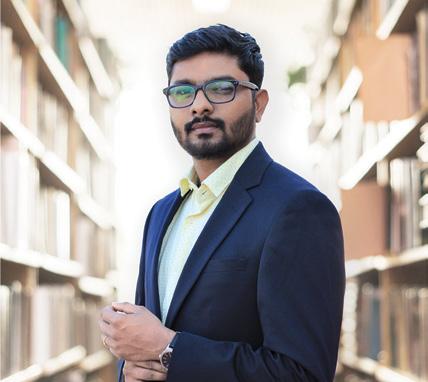
using different tools, activities, and systems will make learning activities more inclusive and individual to each child as there will be something suitable for everyone.” In fact, innovation in education aimed at improving interactive learning and advanced technologies like extended reality is a great way to move ahead. With massive changes happening in an industry that has been reluctant to shift its methods of operation, educators must keep themselves abreast with EdTech and the latest developments in the field of education.
To help academicians, parents, and other education stakeholders understand the latest trends in education, we have come up with a special issue that features insights, opinions, and ideas from experts in the field. We hope our efforts will help school administrators and educators to make informed decisions on their journey. Enjoy Reading.
Sarath Shyam
K12 Digest January 2023 5
MANAGING EDITOR’S NOTE
Former International School Principal, Former Group Project Director at a World Class Learning Group, Education Consultant - Wright Solutions, United Kingdom

INTERNATIONAL ADVISORY BOARD
Founder & CEO - Paths to Math Ltd, Former Mathematics Teacher and Principal, Global Teacher Prize Finalist, Finland

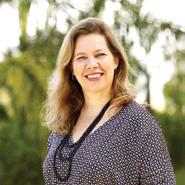

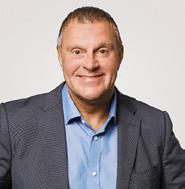
Exceptional Educator from Serbia, Founder of Association of the Best Teachers of the Former Yugoslavia, Founder of Magical Intercultural Friendship Network, Founder of Creative Magic - Children’s International Festival, Founder of Magic Village, Serbia
Asst. Prof. Dr. Poonsri Vate-U-Lan

Assistant Professor in Education, Ph.D. Supervisor and Researcher, Thailand
Principal, Rundle College, South Africa
Chief Education Officer, New Nordic School, Finland
Senior Teacher‘Pashko Vasa’ school Shkodra, Exceptional Volunteer, Albania
Chief of Digital Learning and Development, Norwalk Public Schools, Connecticut, United States

English and Literature teacher, Owner of “The Smart Teens Studio of English” in Belgorod, Russia
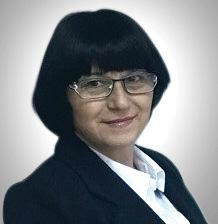
Senior Educationist, Author, Keynote Speaker, Co-founderTríade Educacional, Brazil
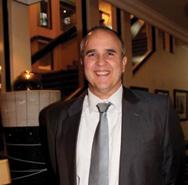
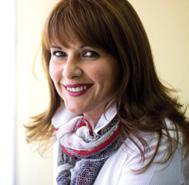
Palmans
Former Director School Administration & Business Operations (Large Education Group), Chief Operating Officer - BBD Education, Netherlands & UAE
Former Program Director, MS in Management Program, GSATM - AU, Thailand & India
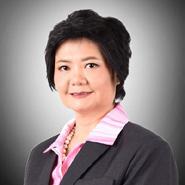
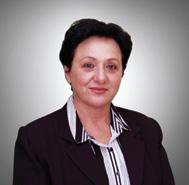
Founder & National President - ATAST, General director of IFEST² the international projects competition in Tunisia, General secretary of MILSET Africa, BRISECC member, Tunisia
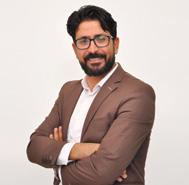
K12 Digest January 2023 6
Stephen Cox
Chris Wright
Dr. Lilian Bacich
Zeljana Radojicic Lukic
Dr. Stuart Grant Colesky
Liljana Luani
Ralph Valenzisi
Maarit Rossi
Elena Shramkova
Hatem Slimane
Servatius (Servee)
Dr. Varughese K.John, PhD
Global Teacher Prize Finalist 2019, 15 International Awards on STEM, STEM Instructor, Educator, Neuroscience Researcher, Trainer & Author, Greece
Dr. Venus M. Alboruto Kihyun Park
Master Teacher, Researcher, Innovator, Trainer, Philippines
Deputy Head and Dean of Faculty, Dalton Academy, Beijing, China
Shady Elkassas
Director of Innovation

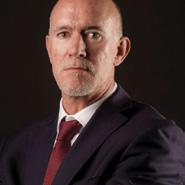
Al Ittihad National Private School-Al Ain, United Arab Emirates
Former Vice President Security (Large Education Group), Former British Army Officer (Airborne Forces), Senior Advisor – Resilience and Crisis Management (Emerald Solutions Group), United Kingdom & UAE
Innovative English and ICT Teacher, Author, Japan
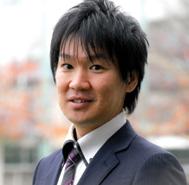
EdTech Specialist, Speaker and Teacher Trainer, Innovative ICT Educator, ICT learning multimedia developer, Indonesia
Distinguished Senior EFL Teacher, ISA Coordinator with the British Council, Motivational Speaker, Tunisia



Juan Manuel Pico Co-founder & Managing Partner, Education Soul, Colombia
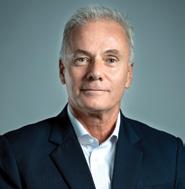
Revolutionary English Educator, Globally Connected English Studio - Hanoi, Vietnam
Master Teacher, Speaker and Researcher, Philippines


Innovative Educator of Online Classroom, Pungsaeng Middle School, South Korea

Mr. Ngô Thành Nam
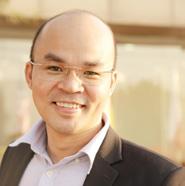
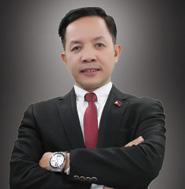
Technology Academy Manager, Microsoft Learning Consultant, Global Trainer, Vietnam
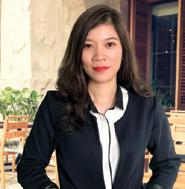
Dr. Manoj Varghese, Ph.D
Senior Director – Global Partnerships, Advisory & Consulting – Connecta® | Head of Advisory Board – Higher Education Digest® & K12 Digest® | Adjunct Faculty –Assumption University | Former CIO – Athena Education | Former Global Director Technology – GEMS Education
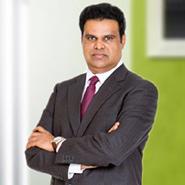
Digest January 2023 7
Rania Lampou
Dr. Leonilo Basas Capulso
Angus Duthie
Herwin Hamid
Ian Deakin
Ha Nga
Hidekazu Shoto
Fethy Letaief
THE IMPORTANCE OF CREATIVE SUBJECTS
LEADER IN FOCUS
LEADING WITH PASSION AND PURPOSE

Kai Vacher, Principal, British School Muscat & British School Salalah

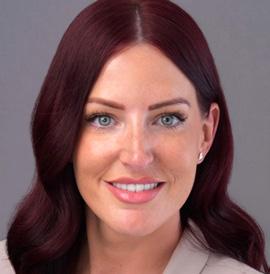
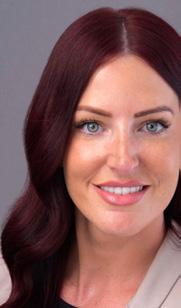
BEST PRACTISES
BUILDING A STEM ENVIRONMENT AND SOME OF THE BEST PRACTICES EMBEDDED WITHIN THE SPACE
Mark Ryan, Head of Specialists (PYP), Raha International School
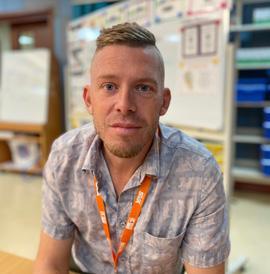
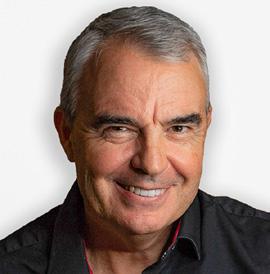
K12 Digest January 2023 8
12
48
Samantha Evans, Head of Year 12, Dubai British School Jumeirah Park
52 CONTENTS
ACADEMIC VIEWS
EARLY YEARS EDUCATION LAYS THE GROUNDWORK FOR A SUCCESSFUL FUTURE
SUSTAINABILITY IN HIGHER EDUCATION


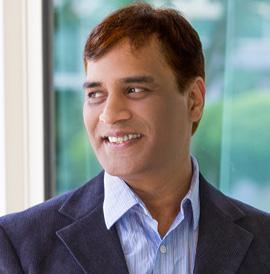
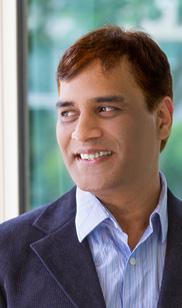
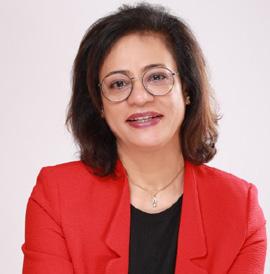
THE EDUCATION PARADOX
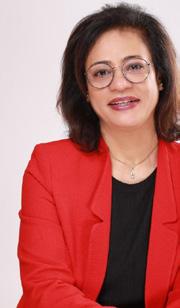
K12 Digest January 2023 9
30
Dr Heena Rachh, Principal, Global Indian International School, Abu Dhabi
56
Dr. Nitin Patwa, Deputy Director (Undergraduate Program & Director of Simulations), SP Jain School of Global Management, Dubai
44
Modar El Hazar, Head of Math Department, Emirates Schools Establishment
ADMIN PERSPECTIVE
THE PIVOT TO REMOTE LEARNING
Claubentz Dieujuste, School Principal, New Visions for Public Schools
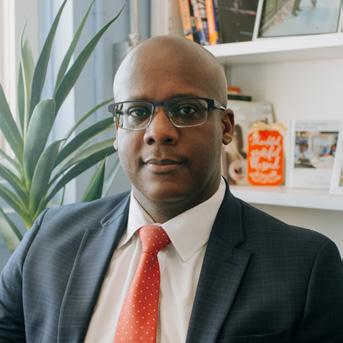
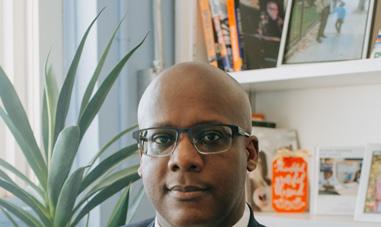
FLIPPED CLASSROOM: AN OPPORTUNITY FOR INCLUSION
Hiba Bawadi, Deputy Head of Science Elementary Department, Sharjah American International School
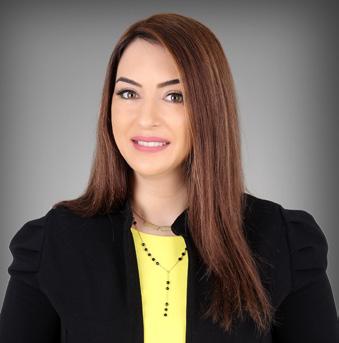

K12 Digest January 2023 10 CONTENTS
26
34
INDUSTRY PERSPECTIVE
HOW DOES TECHNOLOGY IMPACT OUR CHILD’S DEVELOPMENT?
HOW ENTREPRENEURSHIP EQUIPS LEARNERS WITH SKILLS TO BECOME THE GAME-CHANGERS THE WORLD NEEDS NOW?

Yvette Larsson, Co-founder, AHA! Accelerating Education

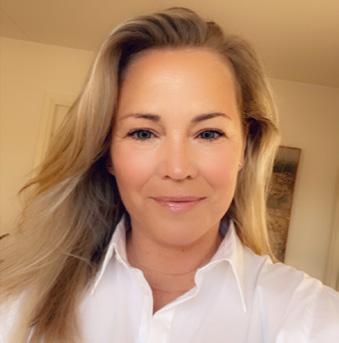

K12 Digest January 2023 11
60
38
Mireia Lopez Montes, Owner, DISCOVERY PLAYTIME
Leading with Passion and Purpose
Kai Vacher, Principal, British School Muscat & British School Salalah
What are the new trends in the education sector that have emerged since the pandemic? Is it for the benefit of the students?
Remote & blended learning expansion
It has been exciting to see how the use of technology during the pandemic is continuing, not just to create opportunities for students within schools, but is also allowing us to
reach students in remote areas of the world more easily. As schools build on their range of online and blended learning programmes, more quality education opportunities for young people, particularly in remote and hard to reach geographies, are becoming available. British School Muscat and British School Salalah’s FlexEd initiative in Oman is one such example which we hope will be emulated by schools in other areas of the world to help more students.
K12 Digest January 2023 12
IN FOCUS
LEADER
Establishing coaching cultures in schools is just one of the creative responses to help support student and staff wellbeing and professional growth
Kai has devoted his career to teaching, learning, and seeking ways to bring out the very best in his students, colleagues, and the school community.
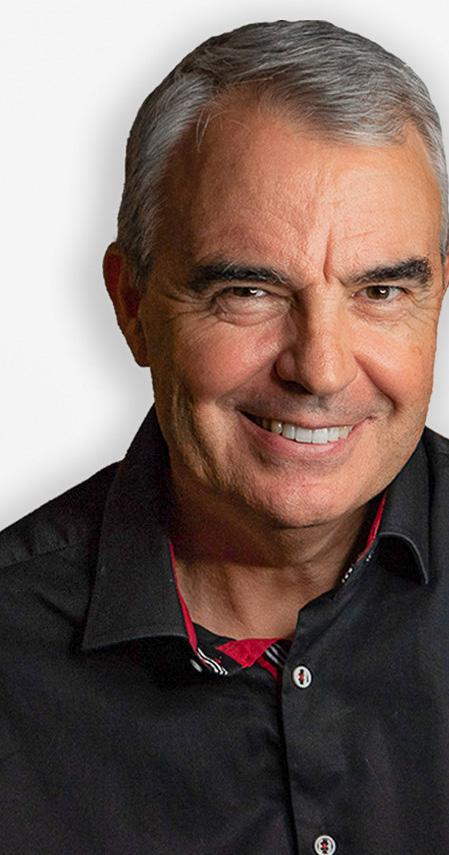
Following 25 years as a teacher and school leader in the UK state sector, Kai was appointed Principal of British School Muscat in 2011. In 2019, this role was extended to include responsibility for British School Salalah, in the south of Oman, with a commitment to ensuring the same high standards of excellence for its students.
Kai is an elected member of the COBIS Board of Directors and Country Representative for BSME. In June 2021, he was made a High-Performance Learning Fellow, recognising the contribution made to education leadership in a global context. He was honoured to be recognised as one of the Top 10 international education influencers of 2021 by ISC Research in January 2022.
In an exclusive interview with K12 Digest, Kai Vacher reveals the emerging trends in education in the post-pandemic era, personal leadership philosophy, pearls of wisdom for aspiring educators, and a lot more. Following are the excerpts from the interview.
K12 Digest January 2023 13 January
The wellbeing and mental health of many students suffered during the lockdown periods of the pandemic.
Whilst the academic learning loss of many students during the pandemic is being addressed successfully by schools, the psychological
impact of extended periods of lockdown on students’ mental health and wellbeing may continue to present a challenge for schools to manage for the next decade or so. As ever, schools are responding creatively by, for example, reviewing their safeguarding,
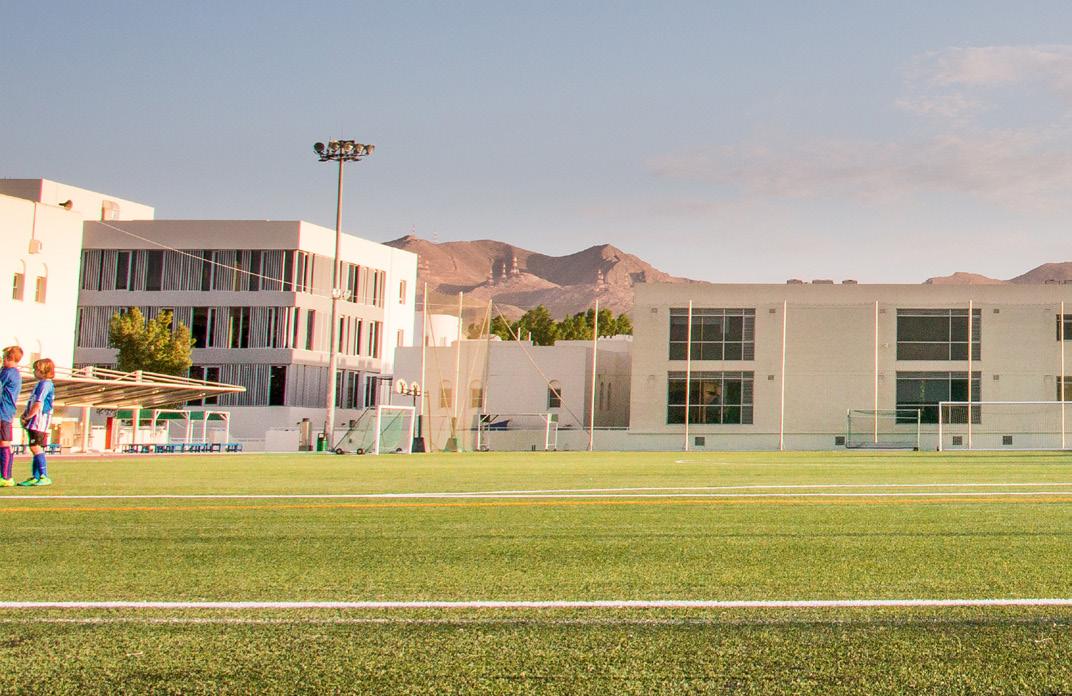
K12 Digest January 2023 14
We firmly believe that “All of us do not have equal talent but all of us should have an equal opportunity to develop our talent.”
child protection, pastoral and personal health and wellbeing programmes. Schools are also looking at innovative ways to engage parents to enable them to better support their children.
Establishing coaching cultures in schools is just one of the creative responses to help support student and staff wellbeing and professional growth. A coaching culture within a school will mean even better learning experiences for young people.
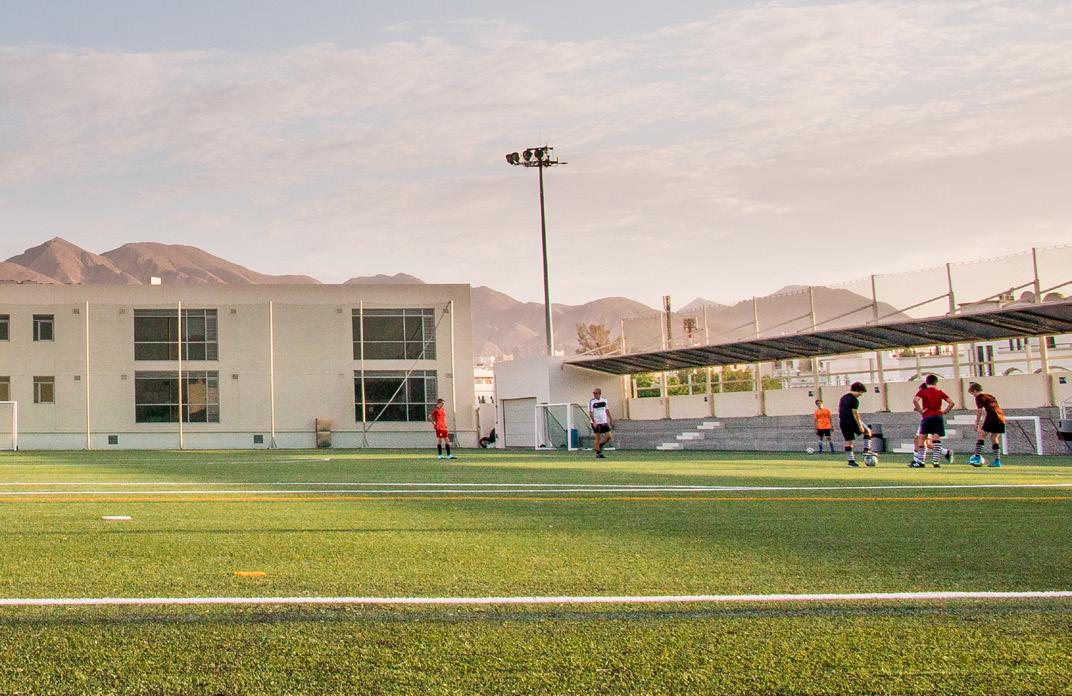
As more schools review their approach to diversity, equity, inclusion and belonging, I am optimistic that they will be asking fundamental questions such as: “Are you motivating every single person who you directly and indirectly influence through your leadership?” and “Are
you allowing each of them to be their best selves?” This question applies equally to students and colleagues. Asking this question should lead to significant improvements in how young people feel respected, valued and included in their school community.
With your experience in education, how would you describe the merging of technology and education?
Is there a dividing line between traditional and modern pedagogies in school education?
Despite the presence of computers in schools for the last 30 years or so we are still in the early stages of exploring how digital technology
K12 Digest January 2023 15
can support learning - schools still have to manage too many digital headaches that get in the way of unleashing the potential of digital technology to support learning more fully.
In our vision for digital education, we should also be clear where traditional educational methods are not enhanced, or not enhanced significantly, by technology - for example the development of oracy and performance skills through music, art, drama, and dance can and should happen without students having to use digital technology. Furthermore, the
development of the hard skills of teamwork, collaboration, leadership, resilience, and perseverance through outdoor and residential education take place ideally in the absence of devices such as phones and laptops.
Take us through the foundation journey of British School Muscat, its vision and mission.
British School Muscat was founded by His Majesty Sultan Qabos bin Said, granting a Royal Charter to the school in 1973 to support

K12 Digest January 2023 16
the economic and social development of the Sultanate. At the same time His Majesty gifted the School the plot of land where the school is located today. His Majesty invited the founder companies, who required a British international education for their employees’ children, to form the Board of Governors and invest in the initial school buildings.
Our vision is to provide world class education where everyone feels valued, respected, and is inspired to learn. Our mission is to grow students who are best for the world.
Brief us about FlexEd. How can FlexEd combine in-school face-to-face learning with online school-based teaching and independent study while remaining affordable to parents.
British School Muscat (BSM) is one of the leading British schools in the Middle East. BSM is based in Oman’s capital, Muscat, with 960 students aged 3-18. On the other hand, British School Salalah (BSS) has just 240 students and is more than 1,000 kilometres away in Salalah, on the remote, southern coast of Oman.

K12 Digest January 2023 17
Teaching my first lesson is undoubtedly the most important moment in my professional career. Fast forward more than 25 years and I have been proud that my career in teaching has given me the opportunities to achieve and be proud of many different things
Prior to 2020, BSS had only offered an education up to Year 9 (age 14). In November 2019 our BSS parents asked us to find a solution that would support the seven children, who were at that time in Year 9, to study for their GCSEs in Salalah. The parents were very clear that the learning had to take place in school, not at home.
Together, British School Salalah and British School Muscat created FlexEd: a successful, low cost, blended learning programme for

students aged 14-19. FlexEd allows the small number of students at BSS to access a world-class senior school education, from a remote corner of Oman, at an affordable price point. This is done with a mix of face-to-face learning, online learning with BSM teachers in Muscat and independent study, in school 5 days a week, using digital technology.
FlexEd allows a small school to employ far fewer teachers on site, enables students to continue their upper school education (age 14
K12 Digest January 2023 18
It is important to build teams and a culture where we believe in each other, support each at all times and ensure that everyone feels they have a voice and that they feel valued
to 18) and to access a quality education at the same cost as the students in the earlier years of secondary education.
The design principles of FlexEd could be adapted to suit the needs of any school exploring an education provision for a few students in a remote location, or where a school is finding recruitment of specialist teachers challenging.
FlexEd has gained national and international recognition for its innovative approach to educational provision.
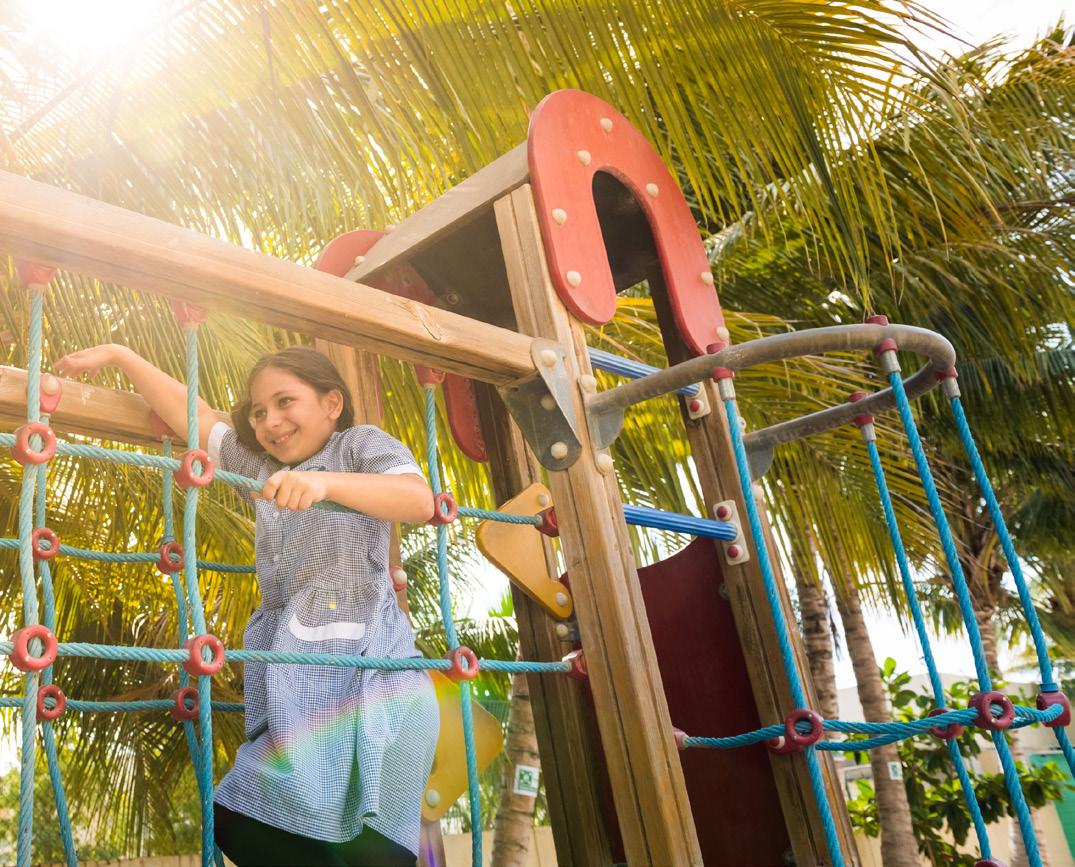
Throw some light on your recent educational approaches. What sets your school’s teaching and learning methods apart from those of its peers?
All our teaching and learning at British School Muscat and British School Salalah is underpinned by our High-Performance Learning ethos.
We firmly believe that “All of us do not have equal talent but all of us should have an equal opportunity to develop our talent.”
K12 Digest January 2023 19
This #EveryoneCan philosophy shapes our provision and means that we are aiming to push the boundaries of student achievement, student leadership and curriculum innovation.

Consequently, every day, our children enjoy a wide range of creative, innovative, and stimulating learning activities that engage our students at the highest levels. Wherever possible we draw on Oman’s inspiring deserts, wadis, mountains, coastline, history and culture to enrich our students’ learning. In the warm winter months students can be frequently found learning in this wonderful range of learning environments.
We are currently capturing the joy of student learning in some short films based around our #EveryoneCan philosophy. We will be sharing these inspiring films with the global education community early in 2023.
Tell us about the various methods and tools you employ to assist students in strategically positioning themselves for careers throughout their educational journeys. British School Muscat provides various opportunities for our students to prepare for life outside of education. We support and encourage our students to investigate career opportunities in our PSHE lessons, during our careers fair and careers week. In addition, we use Unifrog software for our students to research global careers and higher education. Our students are taught to follow their interests and skill sets, which is complemented by our High-Performance Learning ethos and our mission to create metacognitive learners.
K12 Digest January 2023 20
In my previous role as Director of Innovation, for London based school improvement organisation SSAT, I learned that visiting schools with a sharp learning focus can be fantastic professional learning
What are the major initiatives you are implementing to train your newly qualified teachers?
Our talent management strategy to ‘grow our own’ teacher trainees utilises Straight to Teaching and Assessment only routes to QTS. This, combined with our ‘Learning Talk’ coaching culture, provides support to teacher trainees and early career teachers.
As a BSO school, we offer a core induction process, delivering the Early Career Framework using DfE approved professional development materials; we promote opportunities to network with other

early career teachers, both across the school and within international school communities.
Each ECT is assigned a mentor who supports them through their first two years. They also teach a reduced timetable. Opportunities to explore the wadis, deserts and mountains of Oman through participating in our International Award DofE programme.
What are some valuable lessons that you learnt through your prior experience that assist you in driving growth for British School Muscat?
What is your leadership philosophy?
In my previous role as Director of Innovation, for London based school improvement organisation SSAT, I learned that visiting schools with a sharp learning focus can be fantastic professional learning. Consequently, I am always seeking to create such learning opportunities for myself and my colleagues through school visits, inviting educators to our school or working with teachers and leaders in other schools locally, regionally, and globally on common areas for development.
I also believe that schools can learn a great deal from other sectors. So, I am constantly reading and listening to leading thinkers from the business world as well as keeping up to date with the latest thinking and research in the education sector.
I think it’s important to build teams and a culture where we believe in each other, support each at all times and ensure that everyone feels they have a voice and that they feel valued. Creating a coaching culture within school is a practical way of leaning into this philosophy.
We need to embrace with compassion, empathy, and courage the following truths:
K12 Digest January 2023 21
● change is the only constant, and the goalposts keep moving
● there are no guarantees
● life is not fair.
My leadership philosophy can be summed up by using our school philosophy once again: “All of us do not have equal talent but all of us should have an equal opportunity to develop our talent.”
In a world that is constantly changing, how do you keep up with the periodic technological and industry changes? Brief us about the various accreditations, awards, and accolades that British School Muscat has won in the recent past?
We are active members of several organisations, including HMC, BSME, HPL and COBIS,
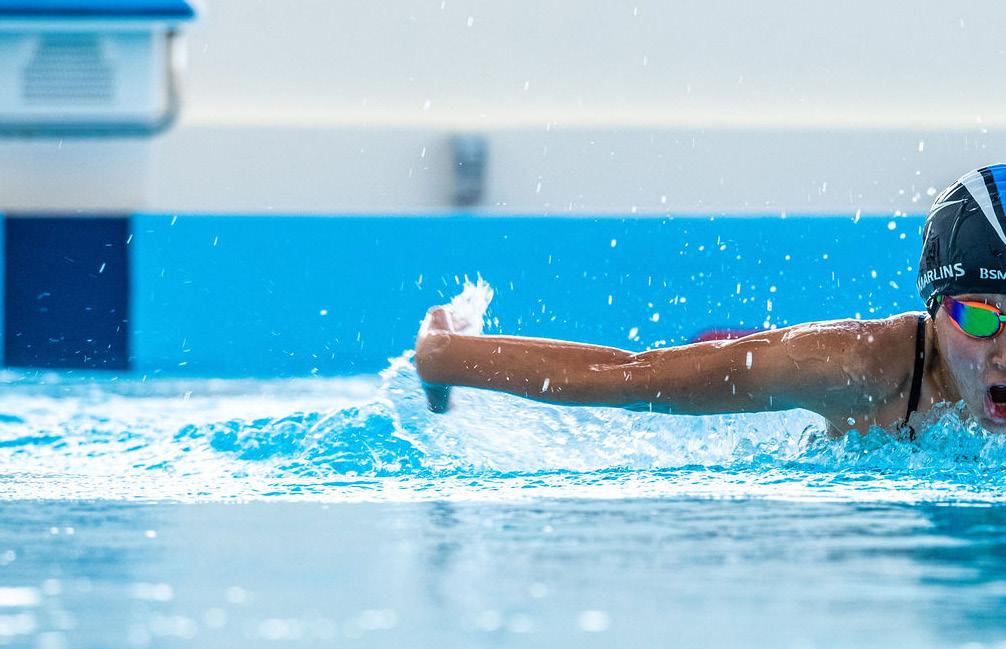
Seize opportunities, however challenging they may seem, if they present an opportunity to make a difference to young people and provide the conditions for professional growth
and attend their conferences, are part of their forums and make the most of the opportunities they provide for us to interact with fellow schools and industry professionals to keep up with and share the latest ideas.
This year we were selected as finalists in the Independent Schools of the Year 2022 Awards, in the British International School of the Year category for our FlexEd initiative. Earlier this year we were shortlisted in the International School Awards, by ISC Research, also for FlexEd.
In the past few years British School Muscat has won many awards, most notably we were voted ‘British International School of the Year 2019’ in the International School Awards (by ISC Research) for our internship programme and in 2018, and International School of the Year in 2019 for our Learning Ethos.
What have been some of the most major moments in your professional career? What has been the catalyst for your success as principal of British School Muscat?
Teaching my first lesson is undoubtedly the most important moment in my professional career. Fast forward more than 25 years and I have been proud that my career in teaching has given me the opportunities to achieve and be proud of many different things.
Since moving to Oman in 2011, I have been privileged to see the growth of British School Muscat and British School Salalah from quiet regional schools to leading international schools. Part of this growth has been through the development of the school sites, to provide world leading facilities, but the most important part has
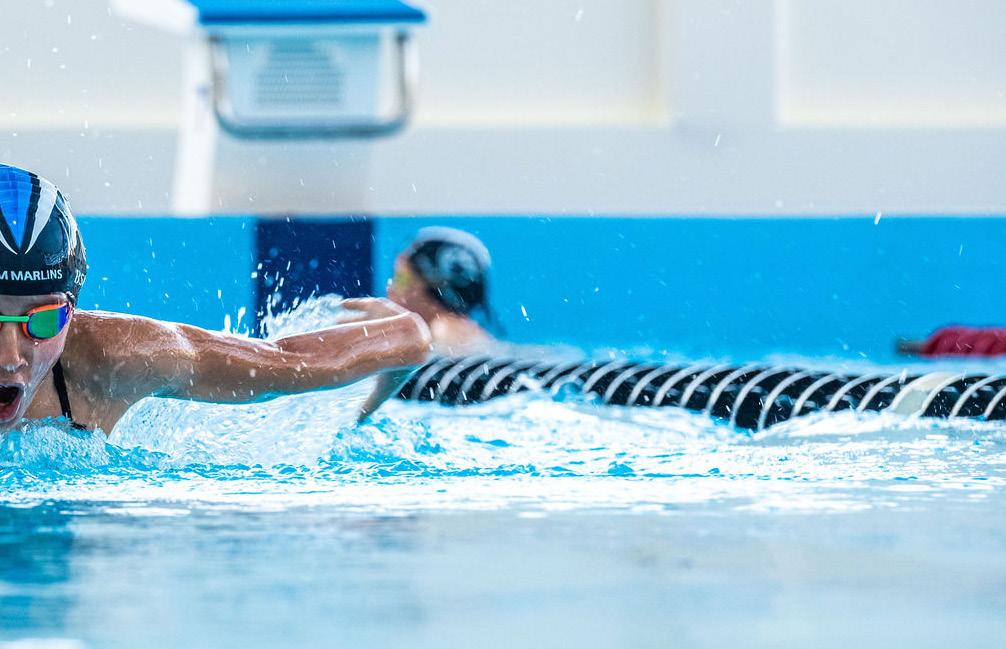
been working with talented colleagues, building a high performing team and always striving to get even better and provide an inspiring educational experience for all our students.
What advice would you give to budding educators?
My five pieces of advice to a budding educator would be as follows:
1. Aspire to Jim Collins Level 5 leadership traits of personal humility and intense professional will.
2. Learn to lead as a coach.
3. Keep an open mind and keep learning
4. Look after your mental and physical wellbeing, ensure you have balance in your life, sleep well, exercise regularly and eat wisely.
5. Seize opportunities, however challenging they may seem, if they present an opportunity to make a difference to young people and provide the conditions for professional growth.
What projects or goals are you working on or leading currently?
Alongside establishing a coaching culture, working with school leaders globally to solve our digital headaches, and continuing to improve the facilities on both our school sites, I am working with the High-Performance Learning Team to deliver the World Class Middle Leader Programme which covers two main areas:
a. high performance leadership and
b. leading inquiry driven innovation. Leading lasting and meaningful change is hard. I anticipate that this programme will support more educators to lean into change and redesign education with a high degree of confidence, success, and joy.
K12 Digest January 2023 24
Leading lasting and meaningful change is hard.
I anticipate that this programme will support more educators to lean into change and redesign education with a high degree of confidence, success, and joy
fellow participants The raise hand feature ensures every student has a voice









and beyond

Share files and applications Poll students Interact with breakout groups
with
Use
JOIN SESSION Easy login, no downloading or installation Share and record video and audio Create personalized profiles
Continue Learning with A Secure Virtual Classroom for K-12
Chat
in the classroom
The Pivot to Remote Learning
Claubentz Dieujuste, School Principal, New Visions for Public Schools
Claubentz Dieujuste is the School Principal at New Visions for Public Schools. He has over 15+ years of progressive experience in oversight and leadership of academic programs and schools. His field of expertise include consulting, classroom management, educational technology, digital engagement, differentiated instruction, and relationship management with solid experience of directing staff and key stakeholders in the education sector. In addition, he also has senior leadership experience with the ability to cast vision, plan strategies, create branding, launch new programs, and efficiently lead a team to reach organizational goals.
Claubentz is a specialist in innovative teaching methods and curriculum development utilizing fresh technology. He is also a passionate advocate for student success, coupled with knowledge of education administration and has proven track-record of leadership excellence, integrity, problem-solving, and teamwork.
7
2 Hours! That’s the timeframe New York City school leaders had to transition their schools into virtual learning spaces. In March 2020, the pandemic forced us to abandon our school buildings. We needed innovation.
One of the reasons students were initially missing from virtual classrooms was a need for
more access. Not all students had a device. In some cases, there was a device in the home but a lack of connectivity. Some households were also sharing devices among several members of the family. While the city was able to leverage strong partnerships to procure enough devices for every scholar, it took a while to have all students pick up their laptops or iPads to begin
K12 Digest January 2023 26
ADMIN PERSPECTIVE
Developing relationships and prioritizing their socialemotional learning needs must remain at the forefront.
School leaders must lead with empathy, compassion, and humility
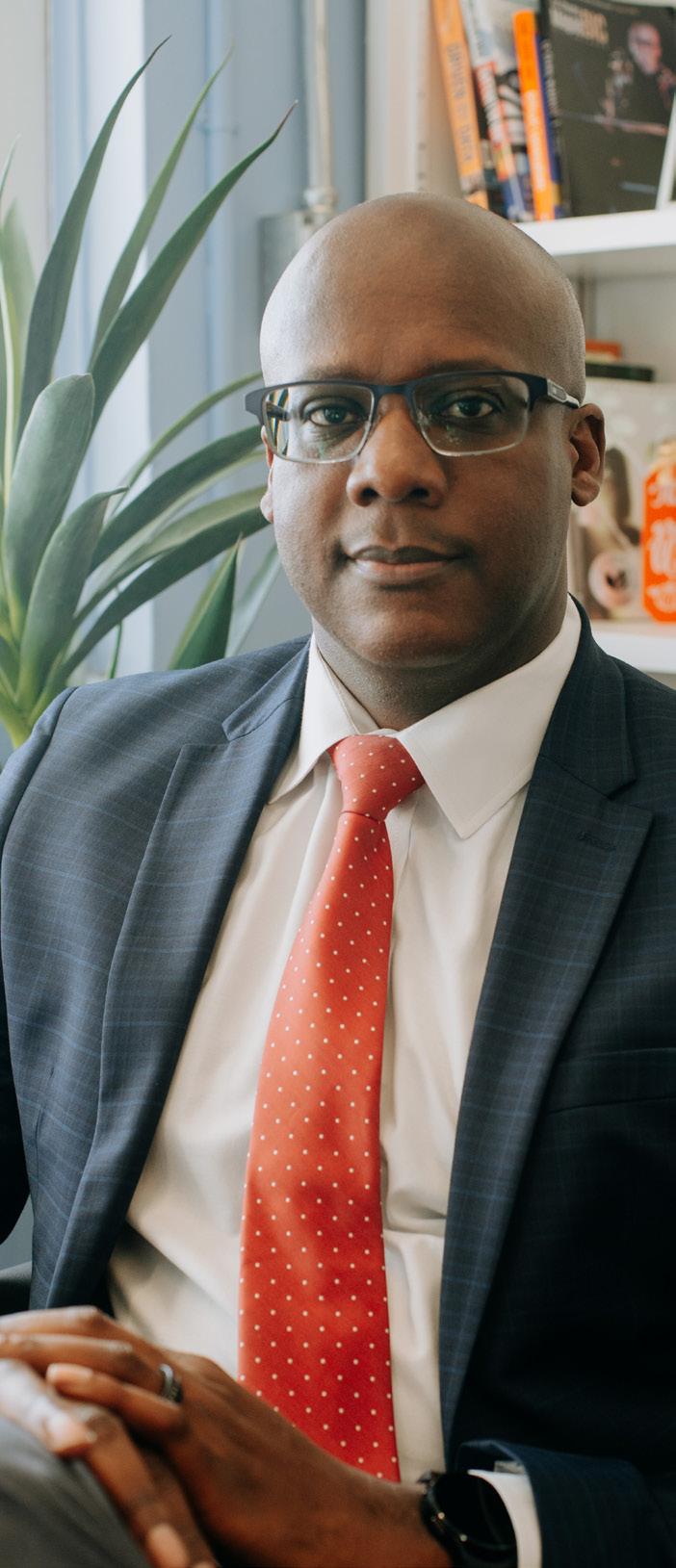
K12 Digest January 2023 27
working on assignments and joining their classes. This endeavor required an excessive number of phone calls to students and families. We quickly realized that the needs of all our students are far greater than academics. Socialemotional learning became more of a priority. Our students and staff were grieving the loss of loved ones to a deadly virus and needed our support. We did SEL checks routinely. I am grateful that my school had an advisory model. Advisors served as point persons for small groups of students. They maintained constant contact with their advisees and families daily to keep them engaged and informed the school community of any needs. My students received
encouraging words from me daily in my attendance email. By noon, I compiled a list of absent students and shared it with advisors for outreach. I also routinely sent out video messages to the seniors to keep them engaged. This period was particularly difficult for them as they were about to miss out on all the typical senior activities such as trips, prom, and even graduation, which ended up being virtual events. I remember recording my commencement speech days before so it could be ready to go live on YouTube.
Some of our teachers started realizing how project-based learning allows students to have the freedom to be creative. In the virtual
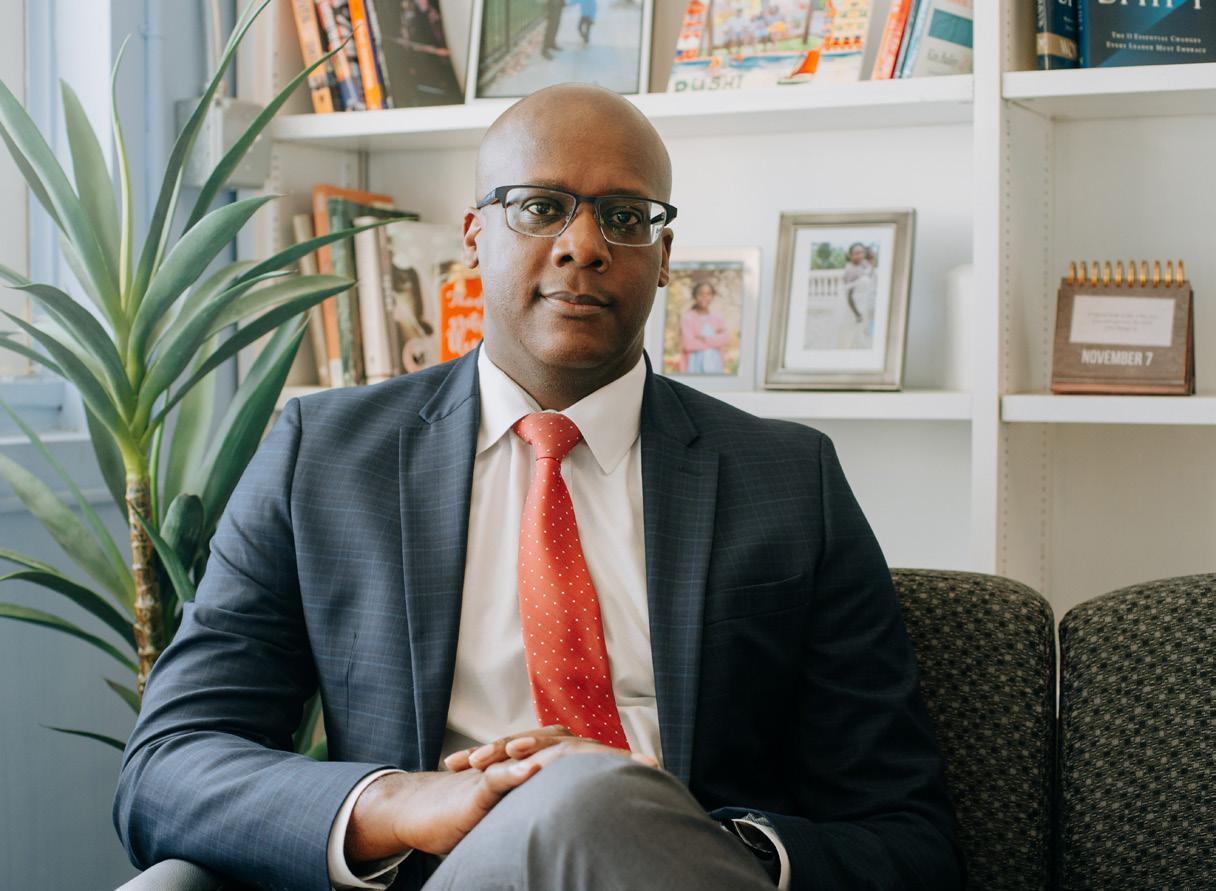
K12 Digest January 2023 28
classrooms, traditional pen-and-paper tests were nonexistent, and teachers needed to give students other opportunities to demonstrate their content understanding. Student-centered classrooms, differentiation, student choice, and once complex ideas to some teachers were naturally becoming standard practice as all students needed to be engaged in learning. Like our students, some teachers thrived in the remote learning space while others struggled. It was important for the leaders to check in and support. I was consistently scouring the internet for instructional resources and sharing them with teachers. This was new territory for all of us and we needed to be empathetic toward one another. I enlisted the help of one of my friends who happens to be a motivational speaker, and an advocate for urban education reform, to come to speak to my staff. I had to be very creative in celebrating teacher appreciation week, another opportunity for me to show love and support to those who took care of our children. While remote learning came with many challenges, it opened our eyes to new possibilities to improve teaching and learning. It exposed inequities that plague our school system. A school is an extension of our students’ families. Students will fall through the cracks without proper support systems like advisory. Developing relationships and prioritizing their social-emotional learning needs must remain at the forefront. School leaders must lead with empathy, compassion, and humility. As we move towards a sense of normalcy, let us not revert to what was and completely forget about the lessons learned over the last three years and miss out on these opportunities to innovate in our school buildings in service of our students
and their families. We need to develop the capacity of our teacher leaders.
Educational policies must also shift. Over the last couple of years, there has been a moratorium on testing requirements. There is an opportunity to rethink assessment practices to include more authentic and performance-based assessment options. Due to their living conditions, many of our students begin working as soon as they legally can to help out at home. Preparing for an interview and getting and keeping a job should be part of the high school experience, a seamless partnership opportunity with local businesses to teach life skills and help combat poverty. Some young people got jobs during remote learning and worked on asynchronous instructional days. Work-based learning opportunities allow students not to feel as though they have to choose between school and work.
The return to school buildings has added enormous pressure and anxiety on educators. Like other industries, education has also been affected by the great resignation. It has become harder to fill vacancies. School leaders have been instrumental in keeping their school communities together. They are responsible for the welfare of all stakeholders. However, many of them feel their needs still need to be met. Who checks on them? The psychological effect of the pandemic on school leaders is profound. As a lifelong learner, I believe that I am a better school leader, and innovative problem-solver because of this experience. There is so much more that needs to be done in our schools and I am determined to continue developing meaningful partnerships to enhance the experience students have when they enroll in my school.
K12 Digest January 2023 29
Early Years Education Lays the Groundwork for a Successful Future
Dr Heena Rachh, Principal, Global Indian International School, Abu Dhabi
The quality of early learning experience is critical for a child’s overall development. This is the time their brains develop, which will define their ability to learn, think and behave throughout their life.
Proleptical brain development forms the pillars of all subsequent learning and behaviour. It is crucial to improve the understanding of this issue and highlight just how instrumental early years development can be in laying the groundwork for a successful future.
K12 Digest January 2023 30
ACADEMIC VIEWS
Positive experiences such as love, warmth and security help to promote healthy brain development
A state champion in lawn tennis and accredited long-distance runner, Dr Heena Rachh has been associated with Schools and Community programmes for last 25 years, she launched her career in education after acquiring her bachelor’s in child development from Maharaja Sayajirao University of Baroda in India. She was driven by an unflinching conviction that Education can change lives. Her first job, as a primary teacher, was in a school promoted by Gujarat Heavy Chemicals Limited, in coastal town of Veraval in Western Saurashtra, India. Barely a year later, she found herself in the role of the virtual head of the school as she got an opportunity to take lead in day to day management for the school and prepare its strategic development plan.
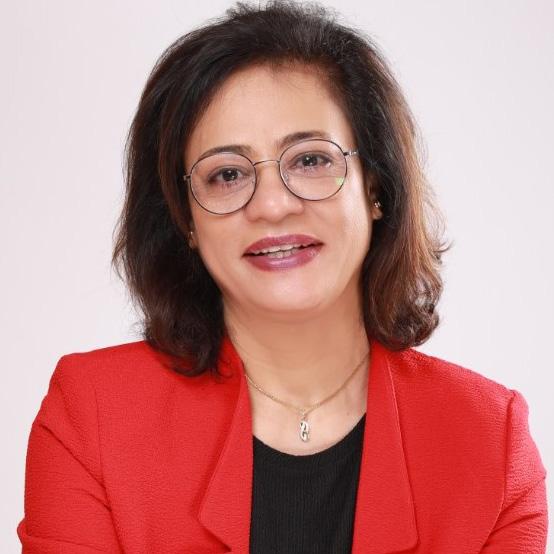
K12 Digest January 2023 31
It is well-established that the first three years of a child’s life are a crucial period in terms of his/her brain development. During this time, connections are formed between nerve cells which provide the basis for all future learning, health and behaviour. If these connections are strong, a child will be more likely to thrive in all areas of life. Many factors can influence the strength of these connections, but one of the most crucial is the nature of learning experiences in their most impressionable years. Positive experiences such as love, warmth and security help to promote healthy brain development.
It’s evident that early years development is connected closely with early education. As children grow and develop, they benefit greatly from educational experiences that support their cognitive, social, emotional and physical development. The right early years education and care plays a pivotal role in enhancing these qualities.
An impactful early education provides essential foundation for a child to thrive in society as an adolescent, as a teenager and eventually as a full-grown adult with complete control over his/her ability to think and make life choices, strengthening relationships, developing a sense of empathy towards others, and reducing the likelihood of engaging in unlawful or antisocial behavior. The implications of this connection between early years development and early childhood education
are significant
As we all know, young minds are developing rapidly, and they learn best through active engagement with their environment and surroundings. The right
choice of education at this age becomes very important, it provides an opportunity for a child to explore, learn and experiment through play, which helps them develop much needed motor skills and critical thinking abilities that are crucial in their later years of their student life.
While we talk about the importance of early years education, it important to understand that many children may not have the access to a good early year education for several reasons like affordability, lack of awareness etc, But nevertheless every child should be afforded the opportunity to benefit from a good education programme during their formative years, regardless of their socioeconomic status. And this is a responsibility on us as educators, country leaders and parents to work towards ensuring access to a child’s educational foundation.
Given the clear benefits of nascent years development, it is crucial that we do more to support it at an educator level, although it’s important for parents to practice the same at home. We at GIIS, take pride in our awardwinning early years curriculum as it follows a multi-discipline approach that is both entertaining and beneficial for the overall development of impressionable young minds. The well-rounded curriculum at GIIS covers all areas of early learning, including language and literacy, mathematical thinking, scientific inquiry, social studies, arts and physical education. In summary, early years learning done right, most definitely lays the groundwork in shaping a child’s social and emotional skills that continue throughout their education and adult life.
K12 Digest January 2023 32
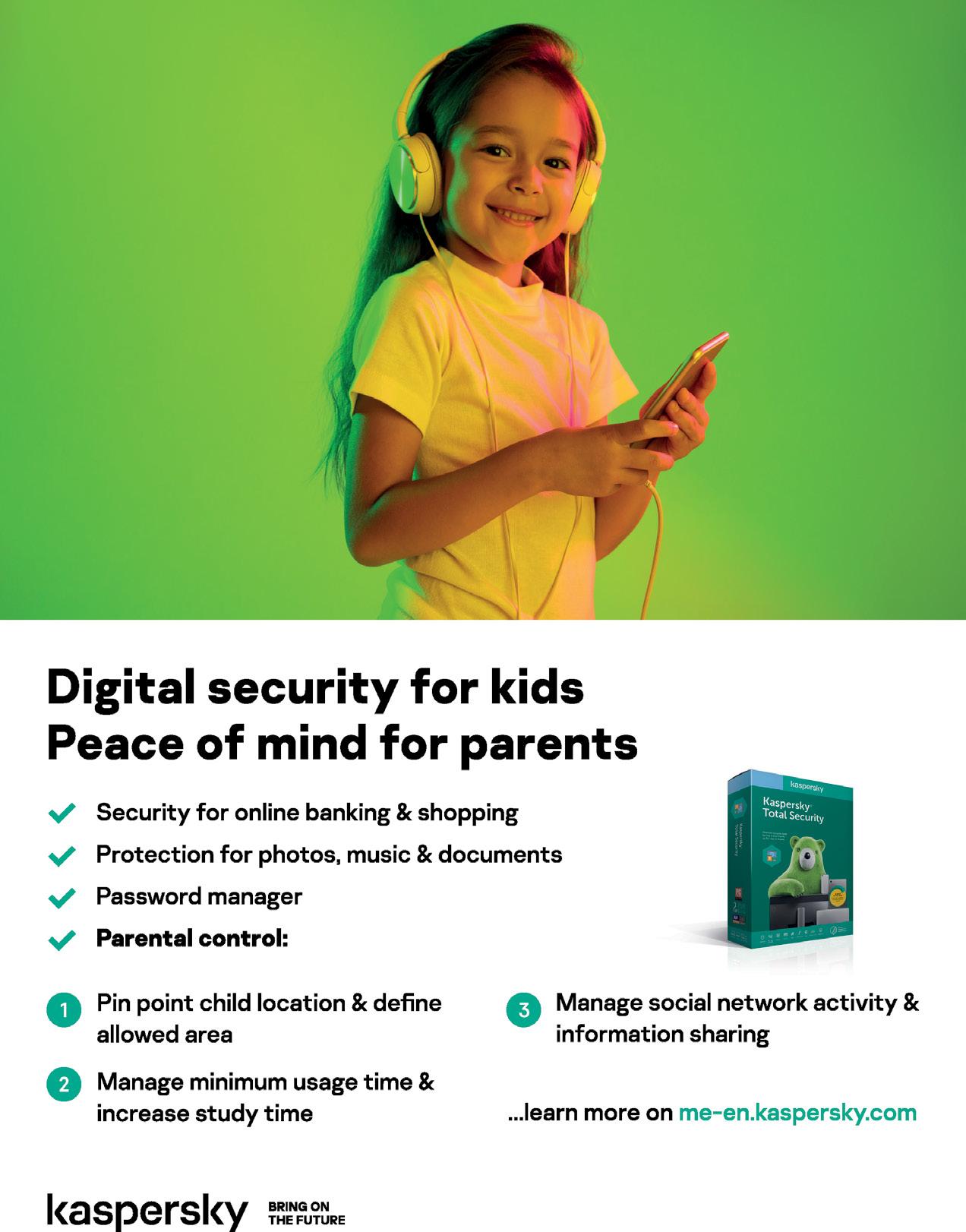
Flipped Classroom: An Opportunity for Inclusion
Hiba Bawadi, Deputy Head of Science Elementary Department, Sharjah American International School
Hiba Bawadi has more than 13 years-experience in education. Starting as a science teacher for early primary classes, her passion for teaching and nurturing her student’s curiosity while targeting their own emotional and academical needs helped improve her leading skills. This led her to be the “Lead Teacher” for an elementary science grade, in addition to being assigned as the “Deputy Head of Department”.
Pursuing her role, Hiba coached and mentored her team in a way that catered for all students’ needs especially SOD students. She oversees the collaboration among her team members to ensure the planning and implementation of creative and engaging lessons which are responsive to the various students’ interests and needs.
“We “teachers” change student’s lives by believing in them, and in their accomplishments no matter how slow their progress is”
The flipped classroom model is a new pedagogical approach that has recently gained much popularity in all education settings. This approach is based on reversing the class-
time lecture and providing students with an avenue for active-learning and engagement. Typically, students prepare the material sent by the teacher ahead of class. As a result, classtime is devoted to hands-on activities, inquirybased and project-based learning, as well as classroom discussions. Hence, the attention is redirected away from the teacher towards the learners which helps them gain mastery in their
K12 Digest January 2023 34
ADMIN PERSPECTIVE
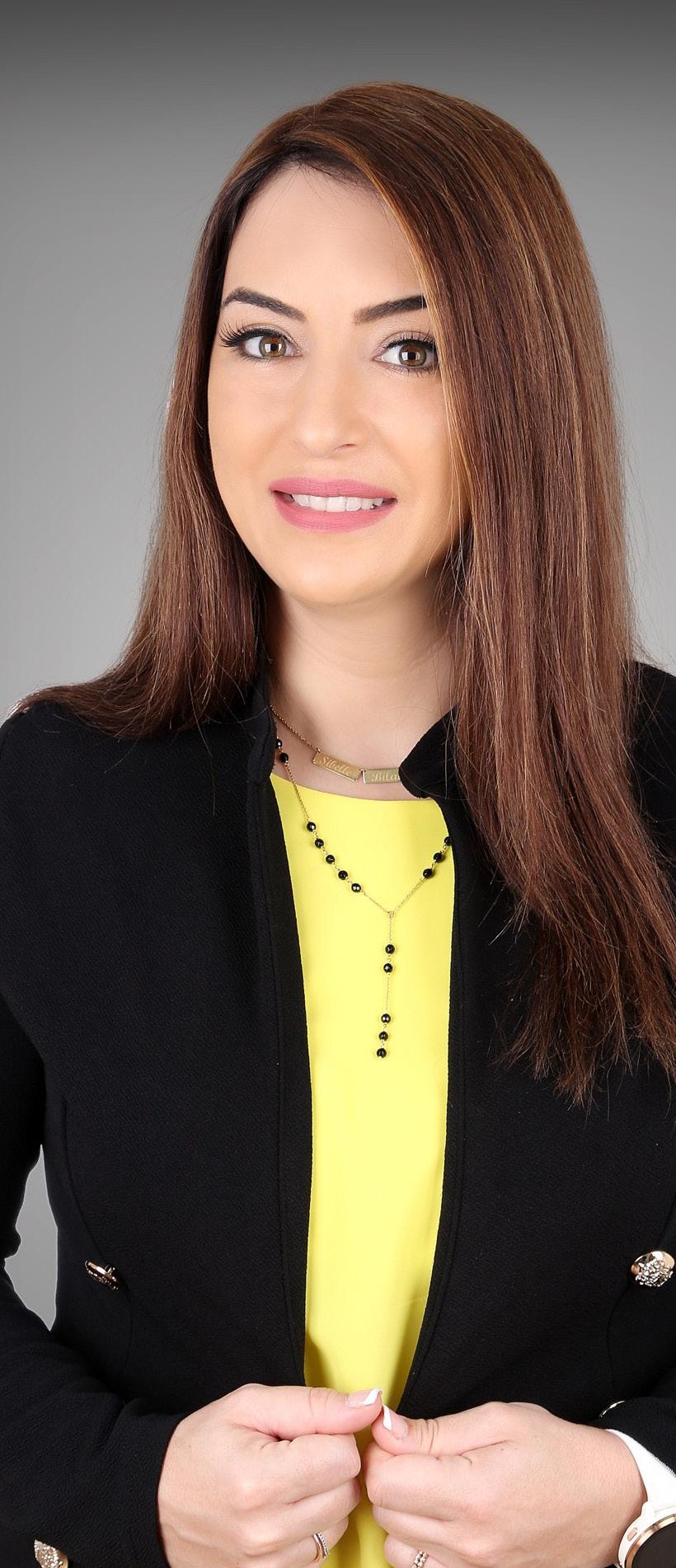
K12 Digest January 2023 35
Being familiar with the students’ strengths, needs, as well as interests is the key to increase the level of students’ motivation and engagement in the learning process
learning, allows more collaboration between students, and increases their engagement and motivation.
It might be difficult to inspire pupils in the classroom, especially when they are “special education” students in a regular classroom. It is challenging for those students to stay motivated throughout the teaching process because of the discrepancy between their independence level and their present grade level. As such, being familiar with the students’ strengths, needs, as well as interests is the key to increase the level of students’ motivation and engagement in the learning process.
Usually, I do apply the flipped classroom strategy in my science classroom. However, once I decided to depart from the norm, and use this strategy as a kind of informative assessment with two of my students who were “students of determination” (SOD) and guess what the results were beyond my expectations!
The first student with a socialcommunication disorder (SCD) had difficulty in social interactions and language use. After assigning him the role of the teacher, we recalled the lesson and planned how he will explain it to his classmates. I guided him and told him what to do as a first step. During class time, he knocked the door, entered the class confidently, greeted everyone and started explaining. He started asking his friends questions about the relationship between altitude, density, and air-pressure. The way he interacted with his friends, and the
K12 Digest January 2023 36
Breaking the routine associated with the flipped classroom model helped me respond to my students’ needs, and this responsiveness was behind my students’ success!
happiness I saw in his eyes were priceless. His classmates were listening joyfully, and they interacted in a way that pushed him to complete. He was able to overcome the insecurity-feelings and gained more selfconfidence. When he finished everyone clapped, and then he approached me to ask: “Miss are you proud of me?”
In the following week, he approached me and asked whether he can teach his friends about the cells. I was surprised yet felt proud at the same time. He took the lead and entered the door confidently. He recapped: “what is a cell”, and “the cell theory”. Then, he told his friends the following: “Guys I want to tell you an example about the number of cells in organisms: an elephant has more cells than an ant, not because the cells are bigger”. This example means that my SCD student was able to process the material in a way that helped him gain mastery in his learning. Therefore, by seizing the chance to lead, my student was able to overcome all his insecurities, which was brilliant.
The other student with “dyslexia”, has a short memory and struggles in reading, writing, and spelling. I encouraged him to take the role of the teacher by giving him a simple task. The aim was to let him believe that he can present his work even though it is difficult for him to read and write. As such, I asked him to orally recall with his friends the layers of the atmosphere, and then ask his friends questions about the other layers. I also asked him to write on the board only the first letter of the other layer, since he can’t spell the full word. In this way he learned
from them while taking the lead at the same time. He was smiling proudly when all his classmates were engaged and collaborating. This incident increased his self-confidence and well-being which was also reflected in his overall performance in the following weeks. Now, every time I enter the class, the first thing I see is his beautiful smile waiting me to assign him a new role.
I personally consider those two stories success stories which are worth mentioning. Breaking the routine associated with the flipped classroom model helped me respond to my students’ needs, and this responsiveness was behind my students’ success! Never underestimate your students’ abilities no matter how slow their progress is.
To conclude, the diversity of methodologies used to involve students in the learning process has increased across the board. Although there is little data on the use of flipped classroom model with students of learning disabilities yet implementing this methodology in a classroom can be advantageous. Those students will have a chance to better interact with their classmates, take the lead, increase their selfesteem and self-confidence. Moreover, they will take up the burden of learning after the teacher. I believe that in education there is no “one-size fits all”. Each child is unique in a way or another. That’s why, teachers should be responsive to their students’ needs, and use differentiated instruction strategies accordingly. This will definitely help students succeed in their learning process!
K12 Digest January 2023 37
How Does Technology Impact our Child’s Development?
Mireia Lopez Montes, Owner, DISCOVERY PLAYTIME
Technology is leading the race against the world, and it’s clearly winning. That leaves us with two options: join the race or stay behind. Each option comes with pros and cons, but do we really have a choice? We, adults, have a more developed brain than children (or we should in most cases) and are able to think and decide what is best for us and what we want, and what way we want to do things. Children, on the other hand, rely on us and our decisions, and whatever we do, they will follow.
When we go to a restaurant and quickly hand our phone to our child with cartoons, so they stay quiet, or in a shop, or in the car… is it really their choice? Why do we do it and how does it impact their development? We make decisions based
K12 Digest January 2023 38
INDUSTRY PERSPECTIVE
Mireia Lopez is qualified as a Primary school teacher with a Masters in Psychology
She is the founder and director of Discovery Playtime and mum to two children who inspired her to start her business. She is passionate about play and child development and promotes the power of play so parents and educators can understand the impact that play has in the development of skills during childhood. To create better generations and more independent and confident adults we need to start by improving the way children play and interact with the world.

K12 Digest January 2023 39
Being bored and frustrated is a natural part of their development, they need to go through that feeling in order to learn how to deal with it, and they will have to deal with it sooner or later
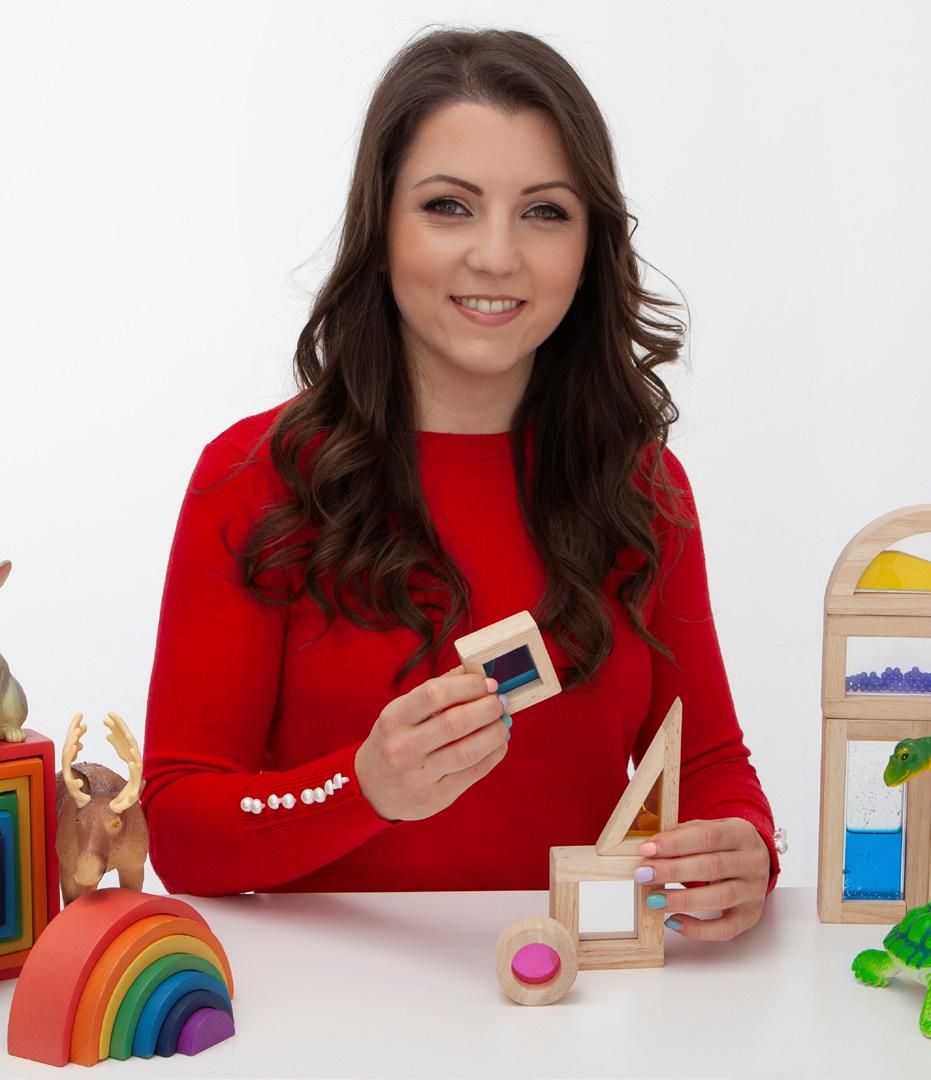
K12 Digest January 2023 40
on our experiences, the more experiences we have, the more options we get and the better decisions we can make. Children (because of their young age) don’t have the ability to come up with ideas all the time, and this can result in the common sentence you have heard many times: “I’m bored”.
When a child says “I’m bored” they are actually saying: “I don’t know what to do to stay busy”, “I don’t like being here”, “I can’t focus on this task”. How do we react to this? We panic and feel like we need to entertain our kids 24/7 to avoid boredom. We come up with all sorts of tricks to keep them busy, but our best trick of all: a screen. We hand out devices so easily. We love our kids and certainly want the best for them. That is why we keep them busy and happy with these electronic machines. By handing those screens we stop them from thinking, from coming up with their own ideas, from talking, from trying to understand what exactly is causing that boredom, from observing the world around them, from being curious, from solving problems… but they are happy… are they?
Do we do this for them, so they don’t feel bored and frustrated, or do we do it for us, so we don’t have to deal with it? Being bored and frustrated is a natural part of their development, they need to go through that feeling in order to learn how to deal with it, and they will have to deal with it sooner or later. Us confronting their boredom is not pleasant, but it must be done if we really want the best for our kids and their development. If they get used to using those devices every time they feel “bored”, they will associate not having the device with being “punished” and this will cause even more frustration and anger.
3 Alternatives to Screen Time Outside the House
1. Engage in conversations. Encourage them to take part in the conversations when you are out in a restaurant or in the car, play games that don’t require any props: I spy with my little eye something blue; how many R letters can you see on the menu; tell me names of people that start with M, clap your hands every time you see a white car… These conversations with your kids will improve your bond, develop their social skills, expand their vocabulary, help them observe their environment, and give them ideas for the next time they feel bored.
2. Bring DIY travel busy bags wherever you go. Use technology as a plan B, or C when you have run out of other ideas, or if it is really taking too long, more than they can REALLY handle! Not all kids enjoy colouring, but there are many different resources out there that can help. Use a zip lock bag for each activity and throw it in the bag when you go out with the kids. You can use a few lego blocks, beads and pipe cleaners for threading, crayons and a notebook, stickers, playdough and small figures… Kids can create their own little adventures anywhere they go. They are using their imagination, creativity and thinking skills instead of switching off their brain while staring at a screen. When you do this, you are investing in their future.
3. Storytime using books or simply your imagination. Start sentences with “if I went to a desert island, I would bring…”, or “if I wasn’t
K12 Digest January 2023 41
scared of anything, I would…” or “if I had a lot of money, I would buy…” or “once upon a time there was a…” or “animals that live in the ocean/jungle/zoo…”. You might have a laugh, but you will also get to know each other better and create little wonderful memories.
The negative effect of technology is not caused by spending too much time glued to the screens, it’s caused by the fact that they are missing out on so much more while they are doing so. Balance is key and we need to be very aware of what children need so we can make an informed decision on when and how they can use their devices. The early years are CRITICAL for the development of a child’s brain. Children practice skills through play and through experiences. By playing, moving, talking, and exploring, they become more creative, confident, and independent. That means that if they are watching screens and not playing, moving, and interacting enough, they are not losing anything but they are also not winning anything. Do you want your child to just make it, or do you want them to thrive? If you chose to thrive, you should keep all kinds of electronic devices ONLY for children from 3 years on and follow some guidance so they can be used in a positive way. Since we can’t avoid the use of technology in our society, we might as well learn how to make the most of it.
How can We Use Technology with Our Kids in a Positive Way?
1. Watch educational programs like documentaries together, wonder and get
curious together, learn about the world and discover things you wouldn’t know otherwise.
2. Coding toys can teach children how to anticipate actions, how to be resilient and determined. They can also help them develop thinking skills and a sense of direction. You can find many different coding toys available for children of different ages. These toys can also be combined with other open-ended toys appropriate to their age, like blocks or sensory materials.
3. Researching information when children show curiosity is a very powerful learning tool. They will have lots of questions, but we don’t need to have lots of answers! We are here to guide them so they can find their own answers. Learning how to learn is so important and this is a great opportunity to do so.
4. Games to support their play experiences (not to replace them). As I mentioned earlier, balance is key. Every person learns in a different way, and it is important that we are aware of our learning style (visual, auditory, hands-on…). Learning using different tools, activities, and systems will make learning activities more inclusive and individual to each child as there will be something suitable for everyone. Same outcome but different process so everyone can connect with the experience.
5. Talking to family members or friends is a good way to keep in touch with their loved ones, improve communication skills and develop vocabulary as well as learn the
K12 Digest January 2023 42
basics on how to make a call, hang up, talk about time spent on a call, decide whom they want to call, talk about that person… Communication is one of the best skills to have and this will definitely help kids develop it through real-life experiences.
In conclusion, children’s brains develop at a fast speed, so we need to take advantage of it and avoid the use of devices that slow it down. We want the best for our kids so providing experiences that promote
communication, exploration, movement, interaction, and creativity will be so beneficial for them. There are so many activities that can be done instead of handing out a screen. It might be harder but having kids come with consequences and guiding them to overcome frustration and boredom is one of them. It is a long-term investment that will pay off when you see your child become a creative, confident, and independent adult who trusts you as their role model.
K12 Digest January 2023 43
The negative effect of technology is not caused by spending too much time glued to the screens, it’s caused by the fact that they are missing out on so much more while they are doing so
The Education Paradox
Modar El Hazar, Head of Math Department, Emirates Schools Establishment
We live in a world today where education in schools is moving forward and towards student centered learning. Schools are continuously trying to expand on asynchronous learning, especially after face-to-face learning took a big hit thanks to CoVid-19. Educators are engaging in more professional development sessions on topics such as flipped classrooms and
creating experiential learning environments in a way that allows students to be responsible for their own learning. The idea of “studying” is escaping the mindsets of school stakeholders while terms like “Project Based Learning” are making their way into the system. It is, however, ironic to see the time, research, and efforts of schoolteachers and leaders go to waste after their students graduate from school.
K12 Digest January 2023 44
ACADEMIC VIEWS
Universities up till this day are teaching in a teacher centered format. You don’t often hear people say that they’re going to lessons, but instead lectures because that is the norm
Modar El Hazar is an engineer in mind and an educator at heart. He has been teaching math and science in the middle east for the past 6 years. He has been seeing practices that he wasn’t too thrilled about in the teaching department which led him to being a head of math department at a school in Al Ain, UAE, but he felt that he would be better off being with the kids he teaches instead. He is passionate about teaching the future Emirati generation using the best practices he has come across during his research because he was brought up here and hence believes that he should be a part in the country’s growth to success by igniting the fire in children’s souls.

K12 Digest January 2023 45
Universities up till this day are teaching in a teacher centered format. You don’t often hear people say that they’re going to lessons, but instead lectures because that is the norm. Being a student in school was very experiential and hands-on, group work always took place in classes, performance tasks thrown out left and right, acting classes in English periods, real life science experiments taking place in labs, and much more. The school built such incredible hopes for what it is like to grow up and become a university student. I sought after what was supposed to be known as being a mechanical engineer who will use his expertise to design a formula 1 car or discover how turbine
blades should be designed through trial and error in the aerodynamics or fluid courses. This is where the cricket noises chorused.
My hopes and dreams of seeing how the engineers designed the cars or cooling systems fell to hit nearly rock bottom. I didn’t give up entirely. Listening to intelligent minds who give their life experiences through stories and explanations was motivating. It is unfair to my university to say that lectures were boring or non-educational, on the contrary, they were very informative. My bachelor’s project is where things became more handson and less guided. I started feeling autonomy in my degree for the first time. I was going
K12 Digest January 2023 46
I slowly came to realization that the workplace is an environment that admires and appreciates innovative and creative ways of teaching and getting the student to learn new themes, ideas, concepts, and much more, but the result is still going to be the same
to workshops and asking for all the bits and pieces that I needed to build and design my bullet bicycle which ended up looking like Pacman and had nothing to do with what we learned in our engineering degree. My simulations, report, and my presentation was on point. We were so used to getting everything right on paper, even if it was innovative and new, but it was painstakingly tough when it came to telling the factories to make sure they meet your deadlines or readjust any errors caused by them.
In terms of the engineering knowledge, our students were some of the tops in the region, but I can safely say my graduating year had little to no work experience. As students studying in Bekaa Valley in Lebanon, finding engineering internships was difficult to say the least. Other majors made internships as part of the degree’s credit hours so that they can graduate with some experiences to write on their CV.
The questions that came to my mind were “why should students go and look for internships in pharmacy and not the universities bring the pharmacy life to the students?” or “who is going to hire me without any work experience and take my word for it when I say I’m the best there is?”. This is where I felt our system needed a change. The way teachers in school aspire to ensure that students are in charge of their learning must continue all the way to university. The main reason anyone, including myself, gets a degree is to secure a job. Seeing as the education system in engineering should change, I decided to enter the realm of teaching to ensure that
this learning experience goes all the way up. Things didn’t go exactly according to plan.
I slowly came to realization that the workplace is an environment that admires and appreciates innovative and creative ways of teaching and getting the student to learn new themes, ideas, concepts, and much more, but the result is still going to be the same. We will end up making sure students do well in SAT’s and IELTS to secure their seats in colleges, practice enough MAP questions to earn better rankings in official inspections, respond to parents’ single and common question of “how much is my child getting in school?”, and much more. In essence, practices may be different, but the result is almost the same. It’s understandable because if you open any university admission website, they all have the same metrics of requirements.
In conclusion, I believe it is paramount that the metrics for college applications to be revised globally because we as educators can’t be asked to differentiate our lessons according to the learners needs and have all learners face the same test of college admissions. It is also important that universities start investing more in the curriculum development of their courses to ensure that students are getting a more hands-on learning experience while always keeping a place for lectures. We as educators have to try and break the paradox of enforcing student centered styles in our classrooms then going up to only professor centered by making our voices heard to the giant examination boards who set bars for all students to be the same yet preach individual needs for specific learners.
K12 Digest January 2023 47
The Importance of Creative Subjects
Samantha Evans, Head of Year 12, Dubai British School Jumeirah Park
Samantha Evans has been a teacher in the UK and internationally for 10 years now, and alongside this, she works as a Contemporary Artist and Designer. She graduated from University of Creative Arts with MA in Design, and BA Hons. in Fine Arts. Throughout her artistic career, Samantha’s work has changed drastically. Her university years saw huge sculptural installations, and more recently, her work will flitter between large abstract textured paintings that explore colour, or in some cases the absence of colour, to muted figures that express femininity and beauty. Samantha’s design work, however, differs completely and is heavily inspired on the rawness of Young British Artists, mixed with a sprinkle of a brash and bold Pop Art inspired colour pallet.
K12 Digest January 2023 48
BEST PRACTICES
The archaic idea of creative subjects being of lesser importance than their academic peers is something that I have fought against since my very own academic journey. Thankfully, it is a view that has changed significantly since that time. This does not mean that our fight is over.
We are still in a time where education will put more focus on ‘core’ subjects which changes depending on schools. These core subjects
have a much greater weighting when it comes to exam results, league tables, inspections, and essentially the perception of the educational facility.
Not all students are mathematicians, physicists, linguists, or even creatively gifted, but we need to ensure that we are giving oxygen to their spark, and igniting the fire for their passions, irrelevant of what they may be. All subjects hold equal value, not in the terms
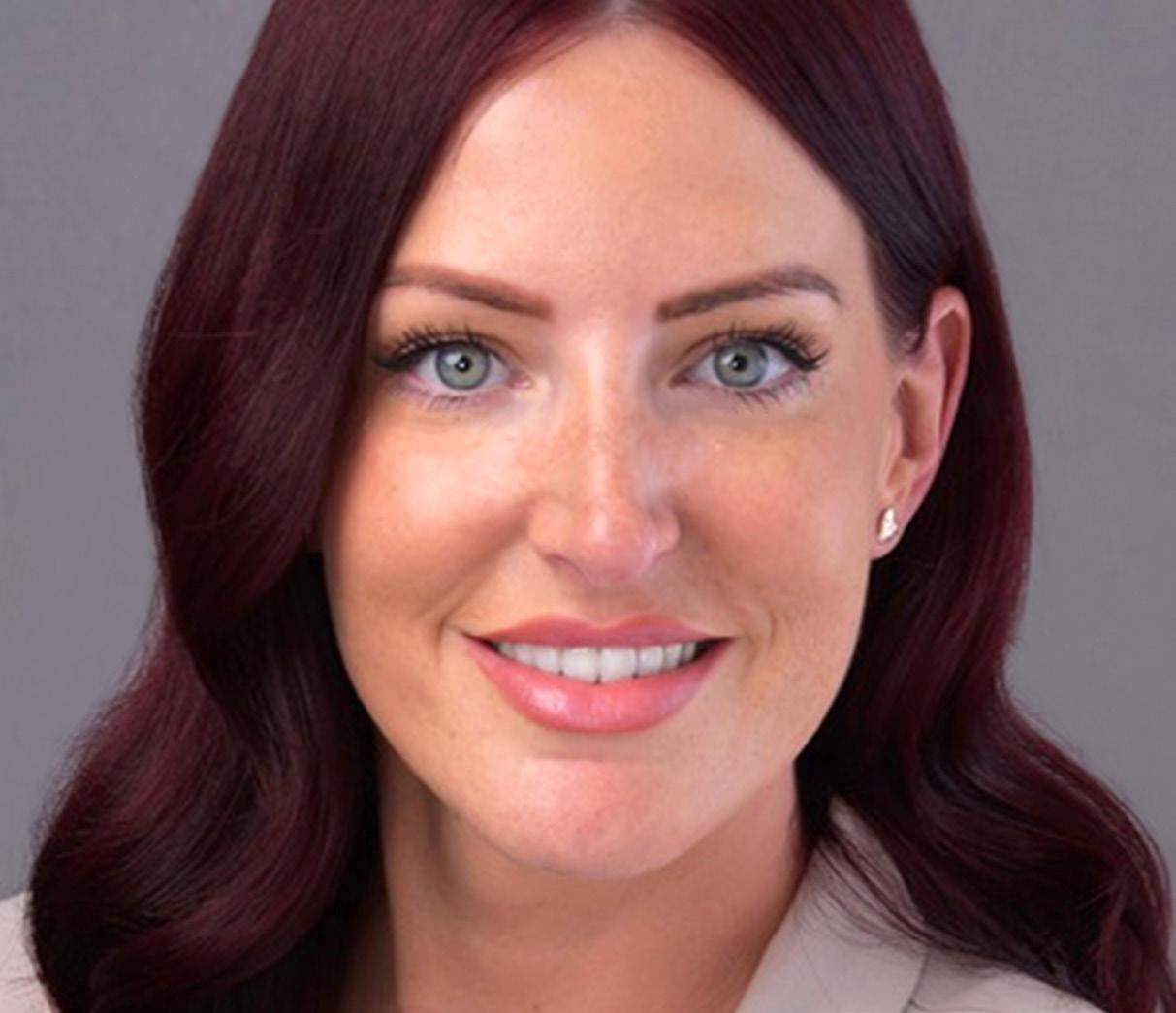
K12 Digest January 2023 49
of tables and results, but for the development of individuals, not just students, but human beings with dreams. A child’s education needs to allow for a space where they can explore a world full of possibility, which is vital from the offset of their educational experience, before it is pushed aside, repressed, or just seen as a hobby. As children grow, they are on a continuous journey of finding out their own identity, and the Expressive Arts allow them to express themselves and support this development.
Growing up I was fortunate enough to have a family that supported my decisions in exploring the artistic route even though I was academically flourishing. I went from an aspiring lawyer to an Artist and Designer. Parents will all have their own hopes for their children and a lot will have already mapped out their career, pretty early on, from a place of love. I can only imagine the fear when a trainee doctor might turn around to their parents and say they want to pursue a career in design. From a very young age children will show
K12 Digest January 2023 50
As children grow, they are on a continuous journey of finding out their own identity, and the Expressive Arts allow them to express themselves and support this development
you where their interests are. I was never seen without a pen or pencil, sketching somewhere in the house, and not much has changed a few decades later. If students can combine success with passion, they have a recipe for a fulfilling career.
Creative subjects connect us to life. The relationships between history, politics, and creative modes are crucial for understanding, accepting, and questioning beyond what we already know. The Arts cannot be taught in the same way as say Maths and Science as it requires your whole self to be part of the creation, which is an entirely different realm of skill and thinking.
The Arts teach us how to be self-critical, question ideals and views, portray this through different mediums. It brings out resilience in students through the accepting of criticism and teaches them how to review and refine their work following feedback. Resilient people are also very employable and make the best entrepreneurs. Students’ ability to accept criticism is a fundamental skill that they will need for the rest of their lives.
Creative subjects develop numerous amounts of life skills within students such as courage and communication. Expressive Arts give them a space to make brave and bold decisions alongside developing communication, not just through verbal communication. Through dance and music, students have opportunities to express themselves both verbally and non-verbally.
Working within the creative areas in schools allows students to become excellent team players as they are continuously required to critique, support, and offer advice to their peers. Similarly, the Arts foster independent learners as it requires them to thoroughly investigate, explore and
meaningfully present their responses through trial and error. Above all, the Arts teach students how to deal with the world around them. It allows them to explore religion, different cultures, and experience historical traditions imbuing them with an empathetical understanding.
Throughout my teaching career, I have come across a plethora of viewpoints and rationale for choosing creative subjects. One of the most common reasons behind the decision, apart from the enjoyment for the subject, is the presumption that it is one of the ‘easiest’ subjects to undertake. Ironically, it is considered a rather challenging career path as an adult. After the first month or so, the harsh reality of undertaking a creative subject hits students taking most of their time. The Arts stretch and require long hours of hard work and dedication which demands meticulous detail, continuous review and refining work. It is often in these subjects where we can see the most disengaged students light up when they are filled with a sense of pride about their work.
The Arts are important for utilising different areas of the brain which are not used during traditional academic subjects. This in itself can improve psychological functioning and promotes synaptic connections to form in these areas of the brain, which improves learning. Such subjects can also be useful for the nervous system and aid relaxation. The Arts are not linear and encourage lateral thinking; in that, there is no, yes or no answer. Through students’ creations, they allow other people to see and experience what they do. Creative subjects access not only parts of the brain that other subjects do not, but also the spirit and body as well.
The Arts allow us to express the ‘inexpressible’.
K12 Digest January 2023 51
Building a STEM Environment and Some of the Best Practices
Embedded within the Space
Mark Ryan, Head of Specialists (PYP), Raha International School
Mark Ryan is an international educator from Canada. He has been teaching internationally since 2005, working both in Hong Kong and the United Arab Emirates. Mr. Mark has worked with students and teachers both inside and outside the classroom, partnering with groups such as the Louvre Abu Dhabi, Guggenheim Abu Dhabi, and Hong Kong Television Company. During 2010 and 2015, Mr. Mark hosted a television programme for students in Hong Kong. However, for the past eight years, he has led the Specialist programme at Raha International School in Abu Dhabi, UAE.
K12 Digest January 2023 52
BEST PRACTICES
STEM or STEAM education is designed to encourage discussion and critical thinking through practical lesson opportunities around Science, Technology, Engineering, Arts and Maths skills. However, developing an authentic learning environment and curriculum to support the above skills is the tricky part. In
this short reflection, I will attempt to outline some of the best practices in STEAM education as seen at Raha International School, UAE.
Discussing STEAM education can be complicated with many moving parts (pardon the pun). However, I often like to breakdown the space into three main components: TEAM, SPACE and COLLABORATION (TSC). If an
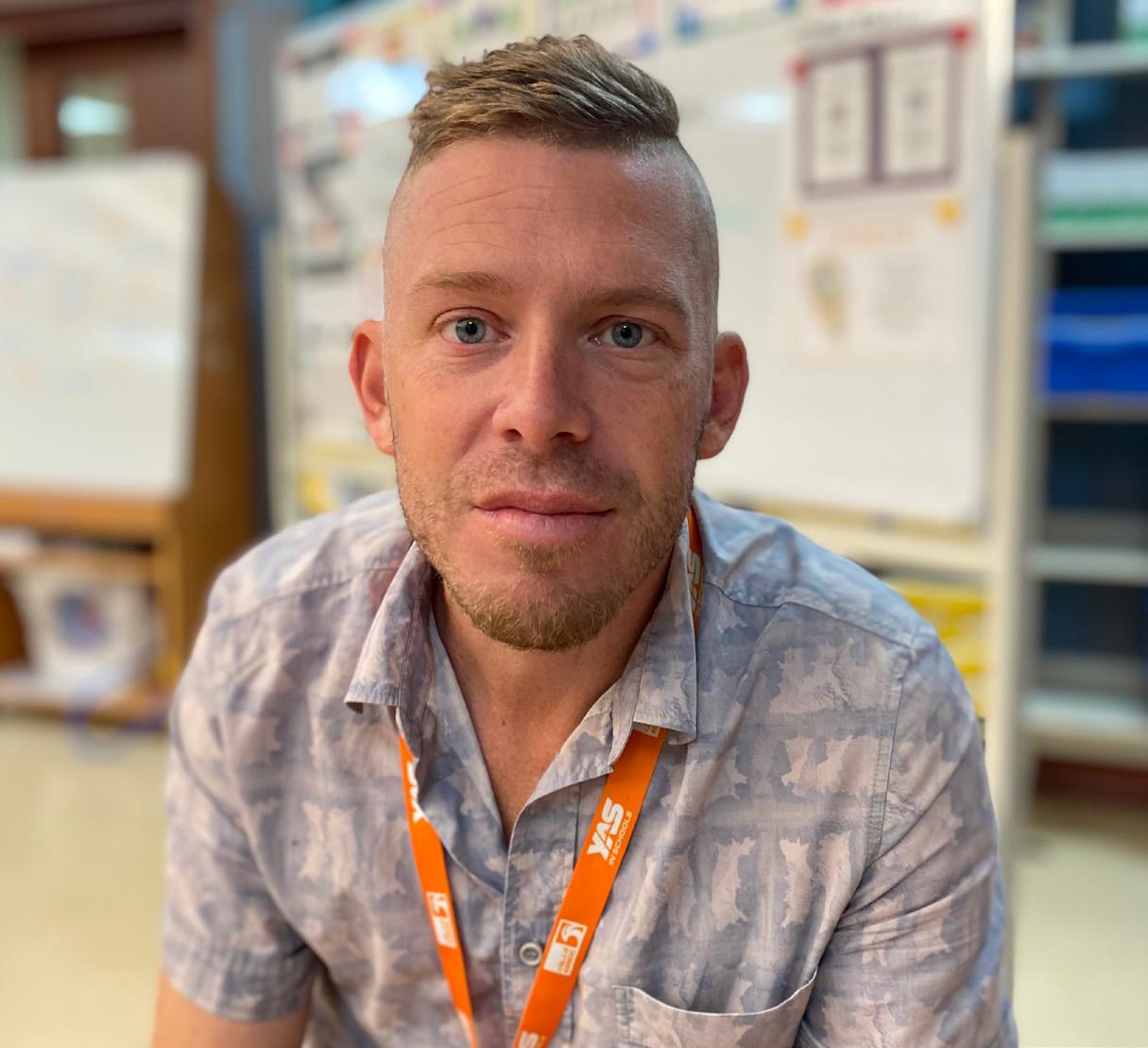
K12 Digest January 2023 53
The STEAM space provides opportunities for students to make real life connections while strengthening the learning developed by their homeroom teachers
educator(s) is able to truly reflect and develop these components, their learning environment and STEAM lessons will improve and ultimately support more learners.
When developing the STEAM Innovation Hub in 2021 for Raha International School in Abu Dhabi, Michael Sheehan and I focused on the TSC components to create a dynamic and innovative learning environment for students, parents and teachers. The process took over a year and involved many stakeholders. In
the end, we were able to seamlessly create a STEAM space that felt part of the school culture and ethos. We started the process, by looking at the importance of TEAM and STEAM.
TEAM
For any initiative to gain momentum, it needs to be powered by an authentic voice(s) and direction. When developing an effective team, you need to outline the focus of your STEAM program and the gaps the program will fill
K12 Digest January 2023 54
within your current educational landscape. At Raha, we were able to use data from both internal and external testing to highlight areas of improvement for our students (Science and Maths) while also supporting areas of strength and well-being (The Arts). Once you can highlight your key areas, you can find educators that will support their development. Coming from an Arts background, I took the lead with unpacking the skills that would be most transferable in the space. However, the real success in building the team was through the conversations with the Head of Technology Integration (Primary), Mr Michael Sheehan. The combination of these two unique teaching styles (Arts and Technology) provided an innovative approach to planning and lesson development.
SPACE
Ideally, a STEAM learning environment needs to be large and flexible (tables, seating) space. There needs to be areas of the space that allow for hands-on learning opportunities. These learning opportunities are best when they relate to learning objectives happening in their homeroom classes (UOI). The space needs to be large enough for students to freely move around during the Engineering Cycle (Ask, Research, Plan, Create, Test, Improve) at their own pace (readiness and interest). Materials and equipment in the space should be safe and assessable to all students. However, strong agreements (“rules”) can be created at the beginning of the year (essential agreements) between students and teachers to ensure that everyone is able to use the space in an effective manner:
1. Be a risk taker
2. Share roles and responsibilities
3. Tidy up workstation before moving to a new task
4. Handle tools and materials safely
5. Make informed choice (groupings and materials)
COLLABORATION
The STEAM space provides opportunities for students to make real life connections while strengthening the learning developed by their homeroom teachers. For the students to make the most of these opportunities, the learning needs to be hands-on and practical. The Science and Maths outcomes taught during these lessons should present themselves when there is an authentic learning experience. For example, while teaching students about building rafts, the STEAM educators should highlight the concept such as buoyancy when the students are about to physically test their creations (rafts). This is so because application of knowledge develops understanding.
STEAM educators and homeroom teachers (with support from curriculum coordinators) need to sit down on a regular basis and map out their units. The plan should have three parts:
1. Long Term (big ideas)
2. Six Week (five to nine learning objectives shared by teachers and STEAM educators)
3. Focus on ATLs (Approaches to Learning)
If the learning objective are then shared with the students at the beginning of each lesson, then both teachers and students can make an accurate assessment of their progress.
K12 Digest January 2023 55
Sustainability in Higher Education
Dr. Nitin Patwa, Deputy Director (Undergraduate Program & Director of Simulations), SP Jain School of Global Management, Dubai
Managing our ecology and building a sustainable future is one of humanity’s core problems in this rapidly changing world. Three essential components must be balanced for sustainable development: social inclusion, economic growth, and environmental protection. All these factors are linked to the welfare of individuals and societies.
Consolidated efforts are required for sustainable development to create an inclusive, sustainable, and resilient future by organizations, culture, society, and, very importantly, the students. Particularly for the younger generation, who must understand concepts like economic prosperity, resource equality, energy consumption, and environmental health and challenges, education on sustainability is becoming more and
K12 Digest January 2023 56
ACADEMIC VIEWS
Psychographic profiling has shown that conscious behaviour towards ecological practices is dynamically related to their level of education

K12 Digest January 2023 57
Dr. Nitin Patwa is deputy director of the undergraduate program and director of simulations at SP Jain School of Global Management in Dubai, which offers a unique try city undergraduate program in Dubai, Mumbai, Singapore, and Sydney.
more crucial. Although educational institutions are where sustainability education begins, it must become ingrained in the curriculum, extracurricular, and daily activities. Education should also equip students who understand the value of living, have the awareness, skills, and motivation to do so, and appreciate the concept of minimalism.
Education directly affects student’s behaviours and attitudes; it affects their perception and attitudes toward the environment and other social causes. Knowledge acquired also involves what they buy and how they perceive value. Therefore, education makes one more concerned about the ecology welfare concerning student’s behaviour. Psychographic profiling has shown that conscious behaviour towards ecological practices is dynamically related to their level of education.
However, to respond to global challenges, they must be given the tools necessary to think systemically and creatively to help solve pressing societal issues. Whether it is an economic or a social cause, proper and efficient communication about a cause and its effects can motivate and shape behaviour. Effective CSR communication also encourages individual’s active participation in a reason during a crisis. With social media now in vogue, they have become active channels for influencing individual and social behaviours and attitudes.
There is growing interest in integrating sustainable development goals into higher education courses (SDGs) to inspire the next generation to work for sustainable development. Raising knowledge of chances to build local solutions, a motivation or drive to make those solutions, and the organizational abilities to implement these solutions in context are all part
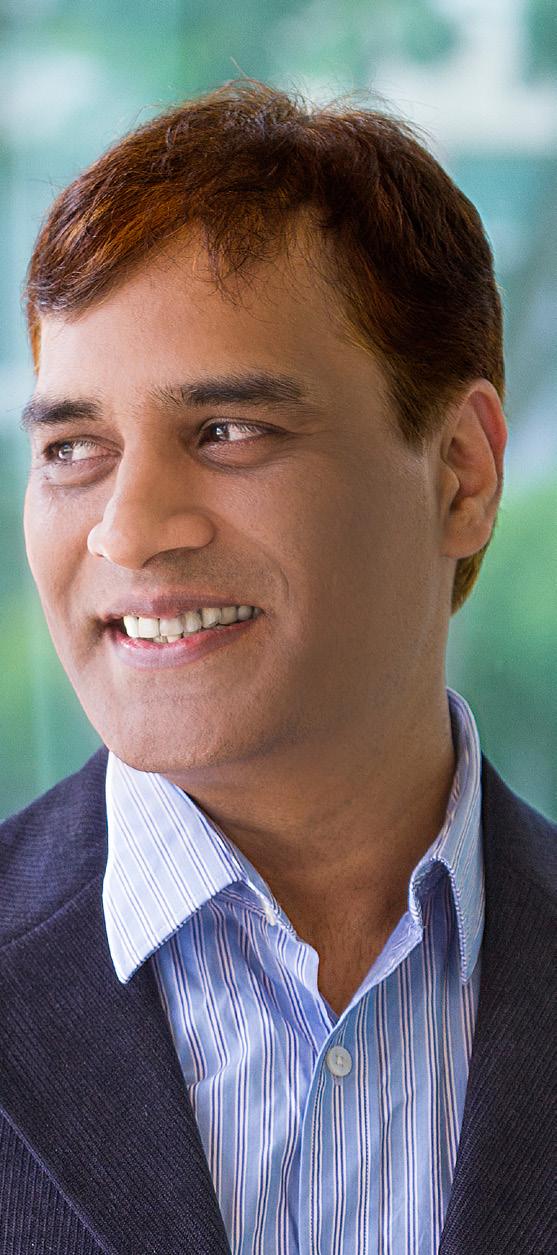
K12 Digest January 2023 58
of education for sustainable development (ESD). Students must acquire practical skills in a way that is consistent with the most current academic requirements. As these courses are added to the academic curriculum, conceptual frameworks focus on theoretical comprehension.
The UN’s Principles of Management Education (PRME) project, introduced in 2007, has made it easier for business schools worldwide to include sustainability in their curricula. As a result, studies on sustainable management education have significantly increased. The importance of education in promoting sustainable development is acknowledged on a global scale.
This led to the recognition of numerous scholarly declarations, charters, agreements, reports, and treaties on sustainability. Higher education
schools/institutions are on a sustainable journey; some just set out, while others are further along. Reflecting on the influence and efficacy of university sustainability initiatives is convenient as sustainability is becoming more prevalent at schools. These institutions have adopted sustainability as a driver of change within higher education institutions and realized it beyond their borders.
More than only campus greening initiatives are part of a commitment to sustainability, transformative teaching, cross- and transdisciplinary research, a focus on social problemsolving, networks, university leadership, and a vision that encourages proactive responses to society-changing demands are essential traits of sustainable institutions.
K12 Digest January 2023 59
With social media now in vogue, they have become active channels for influencing individual and social behaviours and attitudes
How Entrepreneurship Equips Learners with Skills to Become the Game-Changers the World Needs Now?
Yvette Larsson, Co-founder, AHA! Accelerating Education
As I start writing this article, the COP 27 Conference is about to start in Egypt. We are on the brink of winter in northern Europe and with rising electricity prices we all brace ourselves. The war is going on in Ukraine and we have high inflation at hand. Polarization in society is on the rise and a far-right party has just entered a coalition government in Sweden, the country where I live. We just came out of a pandemic and youth well-being is in the spotlight.
These are all examples of challenges in the world we live in now. These are all reasons why entrepreneurship in schools
K12 Digest January 2023 60
INDUSTRY PERSPECTIVE
Yvette Larsson is the Co-founder of AHA! Accelerating Education. She is an international Swede, who is passionate about learning and innovation so that we can create a better world together. She uses applied neuroscience, design thinking, and project-based learning, focusing on our human potential and the question: What does it mean to be human in a global age of technology? Her personal story starts 100 kilometers above the Arctic Circle, where she grew up with a lot of freedom and adventure to roam the mountains and the forests of Swedish Lapland and developed her sense of creativity and entrepreneurial mindset from growing up in a UNESCO protected area with omnipresent nature as her playground. She became an avid reader, traveled in her imagination, and explored ideas. She also became a vivid traveler early on, as her grandparents and parents were explorers.
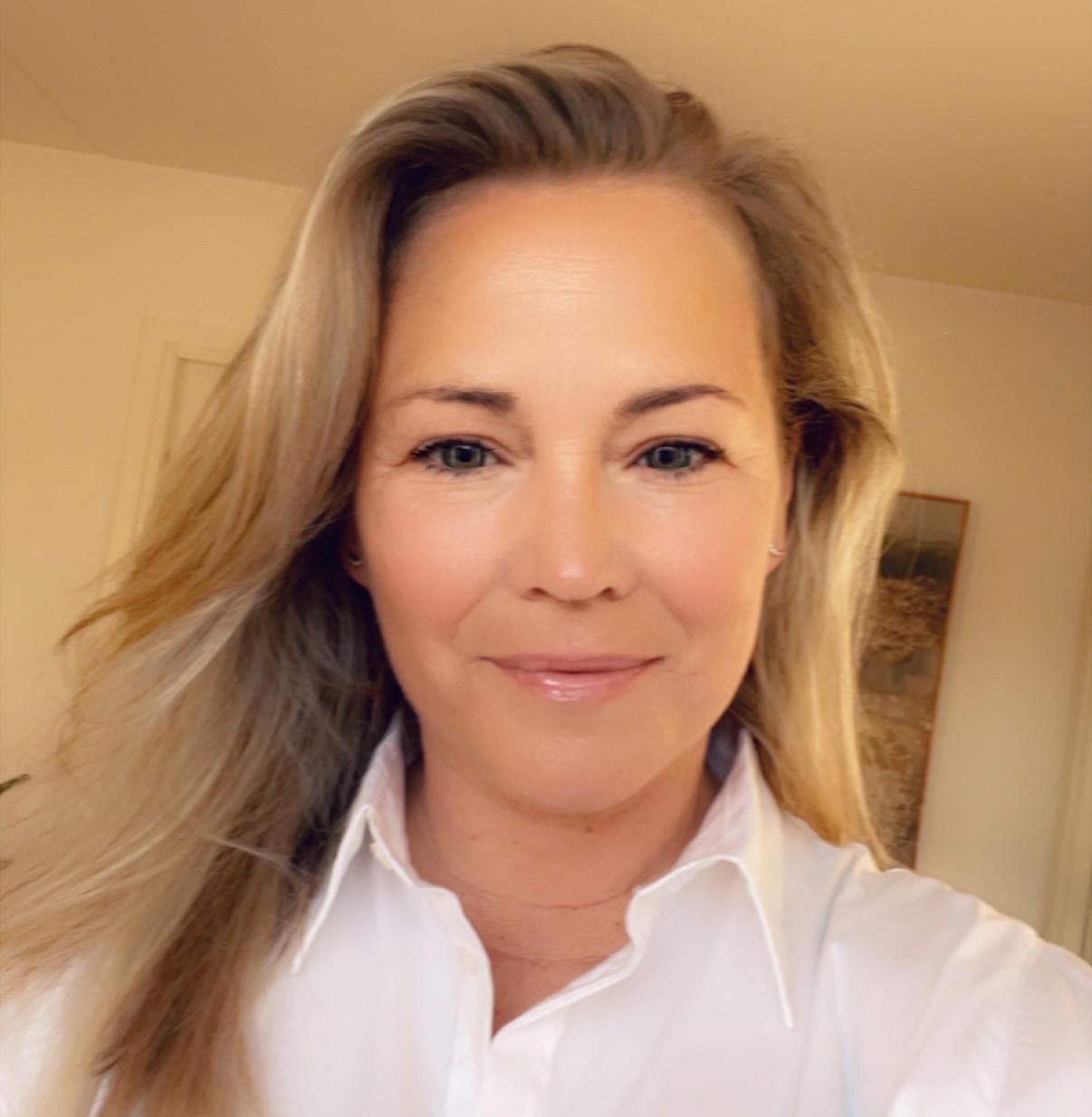
K12 Digest January 2023 61
is so important. The unpredictability of today prompts innovation, and the capability to see opportunity for sustainable change. We need to support young people with the skills they need in order to navigate the reality we live in, to not only survive, but thrive and write a hopeful future.
I am a mum and an educator. I am also someone who is sometimes seen as an innovator within the areas of learning and education. I meet young people every day in my role as an educator, and I focus my work on looking at key questions such as “What does it mean to be human in a global age of technology?”, “What would happen if we educated the heart first and foremost?” I apply neuroscience in the way I teach and learn, as behavioral science is a key to building strong and healthy relationships, that are the foundation of any society.
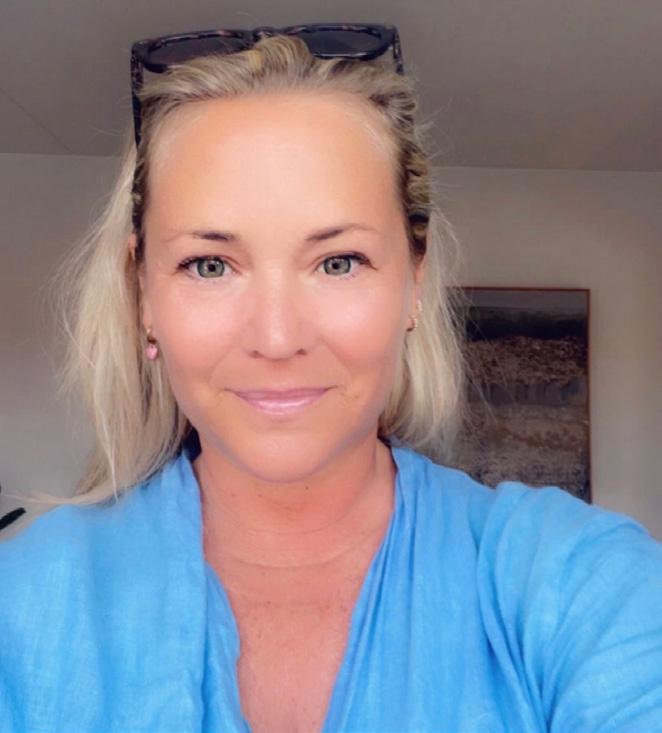
Let’s look at five key concepts that can equip learners with skills, to become the game-changers that the world needs now, key concepts that support an entrepreneurial way of thinking and doing.
Project-based learning and design thinking
Let’s look at project-based learning as a method and design thinking as a cognitive pathway to solve complex challenges. Through PBL and DT learners are set up for the ambiguity of an uncertain world. They are not given a blueprint, but rather a road map with tools for them to find ways to be problem-solvers, or I would rather use the word solution-finders. PBL and DT in schoolsettings are focusing highly on student action and agency. The learner is in the driver’s seat and learns to pose analytical questions,
K12 Digest January 2023 62
be an inquirer, invent new solutions through immersive hands-on real-life challenges. The educator in the room is a facilitator, a guide, who is giving micro-lessons on subjects that are connected to the project and can offer tools and strategies. When the learners learn how to drive an innovation process, s/he can take on any challenge, as this skill is transferable to any area in their lives.
What I have learnt from working with young people at school and at our AHA! Youth Hackathons is that young people wish to be trusted, they want autonomy to explore and create, and they don’t want us adults to talk for hours on end about content, they want to be active themselves. Educators need to trust the process of what young humans can do, take a step back and watch the magic happen.
Skills: We are living in a knowledge dominated society, where anyone can learn anywhere with the help of a simple connection to wifi and an electronic device such as a smartphone, iPad or computer. AI is becoming smarter and smarter and in this context skills are important. Some name them future skills, or 21st century skills, but the future is already here. I like to refer to them as essential skills, skills that innovation leaders need, skills that learners of entrepreneurship need.
In the scope of human history and development, there are two skills which stand out: collaboration and communication. Hare and Woods wrote the book The Survival of the Friendliest, where they put forward the thesis that Homo Sapiens survived, not because we were the strongest who walked the savannah, but the ones who worked together and could communicate and solving challenges together.
Communication and collaboration are the two skills that stand out when it comes to leadership in entrepreneurship. In close connection comes creativity, creativity to find new ways, to moon-shoot, to imagine new ways, to plan scenarios, to dare asking difficult questions. Creativity marries well with courage. One needs to be courageous
in order to act on game-changing thoughts, such as “Shall we build a bridge that connects Sweden and Denmark, with an adjoining tunnel under the sea?”. Someone thought that thought. We do have a bridge that connects our two countries now, with an adjoining tunnel. Someone also had the thought “Shall we go to the Moon?” “Shall we build a pyramid?”
“Shall we try and find the cure for cancer?”
“Shall we build an app that can help…?”
Other skills that support entrepreneurship are for example digital skills, research skills, critical thinking skills, self-awareness, wellbeing skills, empathy, and compassion.
K12 Digest January 2023 63
Educators need to trust the process of what young humans can do, take a step back and watch the magic happen
Skills are transferable in any area in your life, hence, once learning them as an entrepreneur, they will be useful in all your life.
Authentic challenges in a classroom without walls Very often students can’t see the connection to what they are studying in school and how they will use that knowledge in their real-life. It is important to understand the why, the purpose, and us teachers need to be better at connecting a young person’s life to what he or she is studying. When studying entrepreneurship in school it is of utmost importance that the projects are connected to the world we live in, to a challenge that needs to be solved in what I call a classroom without walls. The students will be more motivated if they are part of the process of choosing what the project should be about, be it youth wellbeing, urban mobility areas, safety, or school itself, for example. Motivation and engagement increase when the projects become real. If we think about it, why wouldn’t everything we do in school be connected to young people’s real life?
Growth Mindset When working in teams we sometimes run into challenges within the team, we need to overcome hurdles - and the growth mindset plays an important role here, to overcome those hurdles. Our brain is moldable. We have neuroplasticity, which means that we can create new pathways in our brains, depending on the way we think.
Entrepreneurs develop resilience through practicing a growth mindset - to not give up but to put one foot in front of the other. Entrepreneurs with a growth mindset are not afraid to fail, as they create a room where
“the ceiling is high” and it is ok to try out new things without judgment and blame.
With the growth mindset the entrepreneur learns to ask for help, set goals, adjust things that don’t work, adapt, fail fast, take a pause, and then move on.
These are all behaviors that an entrepreneur with a growth mindset exhibits, and these are traits that also benefit the person in her/his everyday life.
With a growth mindset the entrepreneur can make use of applied neuroscience - when you have knowledge about neurotransmitters, it is easier to change the course of a situation. Oxytocin adds warmth, love and care to a situation, Serotonin creates rapport and feelgood, Dopamine drives motivation, excitement, inquiry, creativity, Endorphins are for overcoming obstacles and having fun and laughing together. When these things are in place, the learner, the entrepreneur will become more communicative, creative, and collaborative. That benefits teams and makes it easier to create a better world.
Glocal: Glocal is what I refer to when looking at a community that is both local and global. When we, AHA! organizing our Hackathons for Youth, we always go glocal. We wish for the local community to connect to communities across the globe. For students of entrepreneurship in 2022, the world is their oyster! We can have direct access to experts anywhere, through Zoom calls, workshops, courses, through public speaking events, through collaborations. We can truly create a “classrooms without walls”.
Why should learning only take place in a square room in the school building when learning happens everywhere?
K12 Digest January 2023 64
